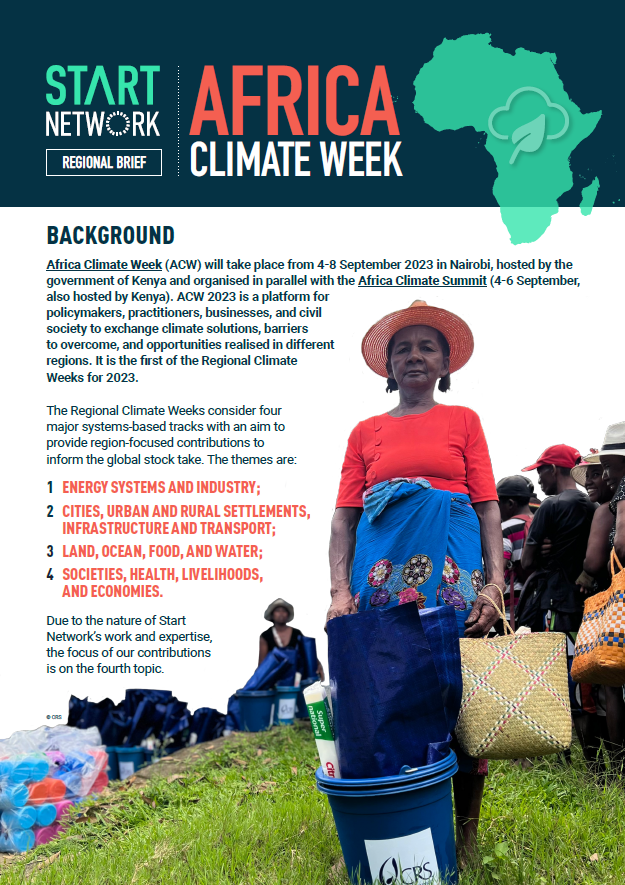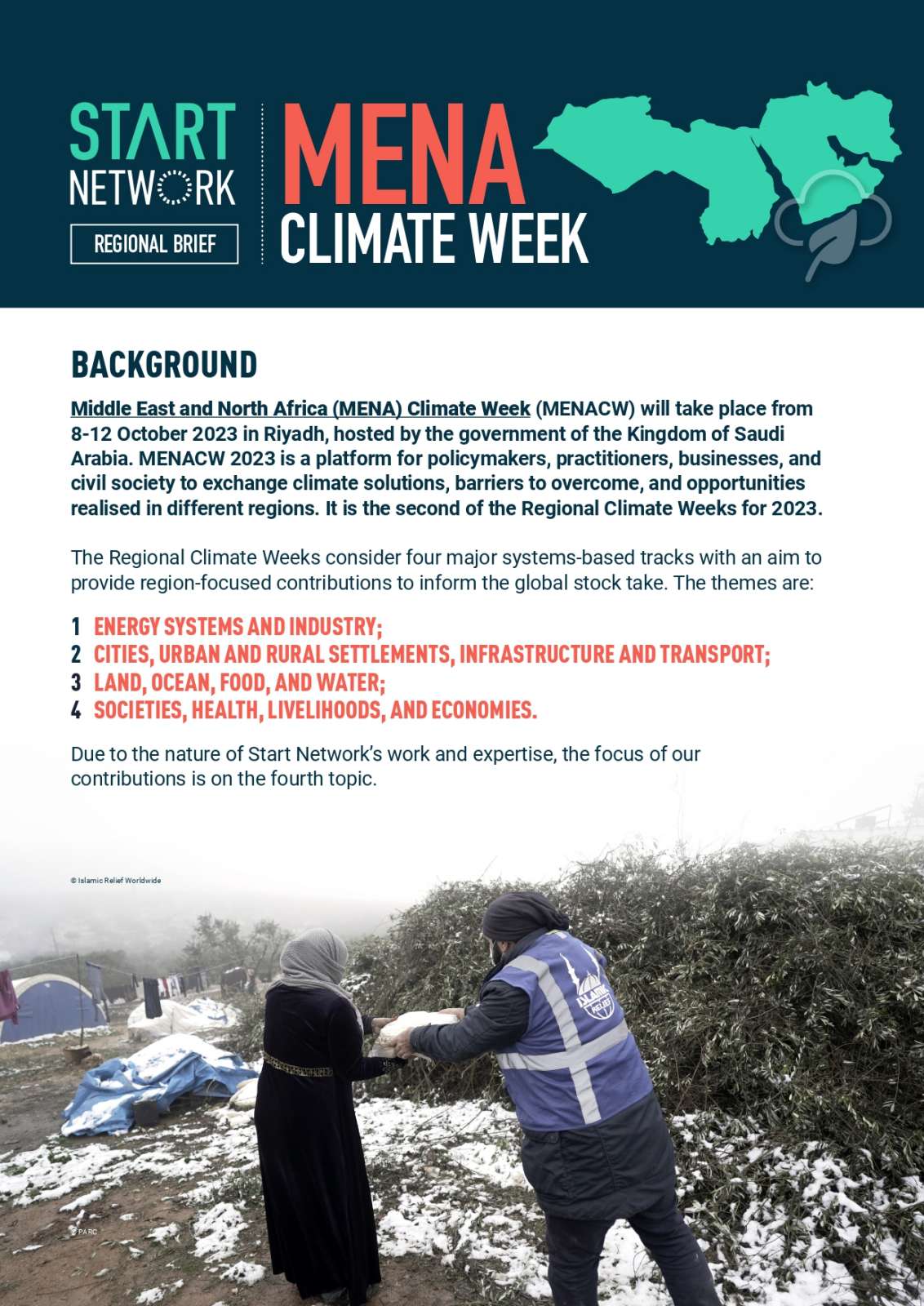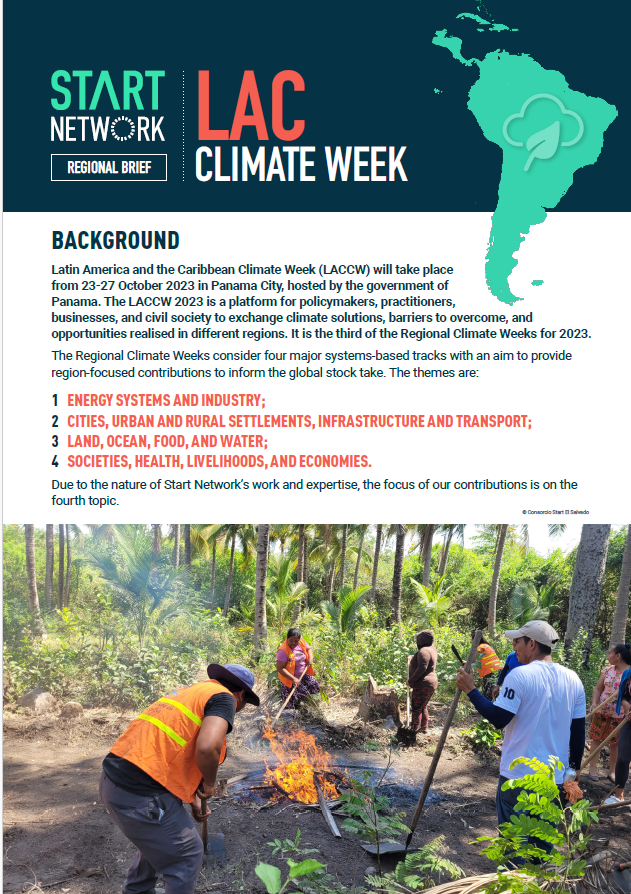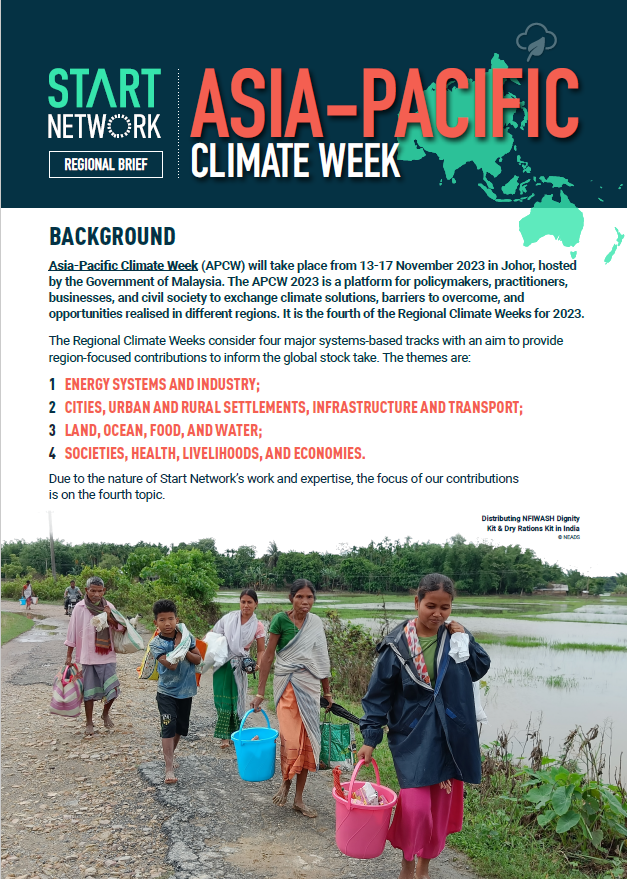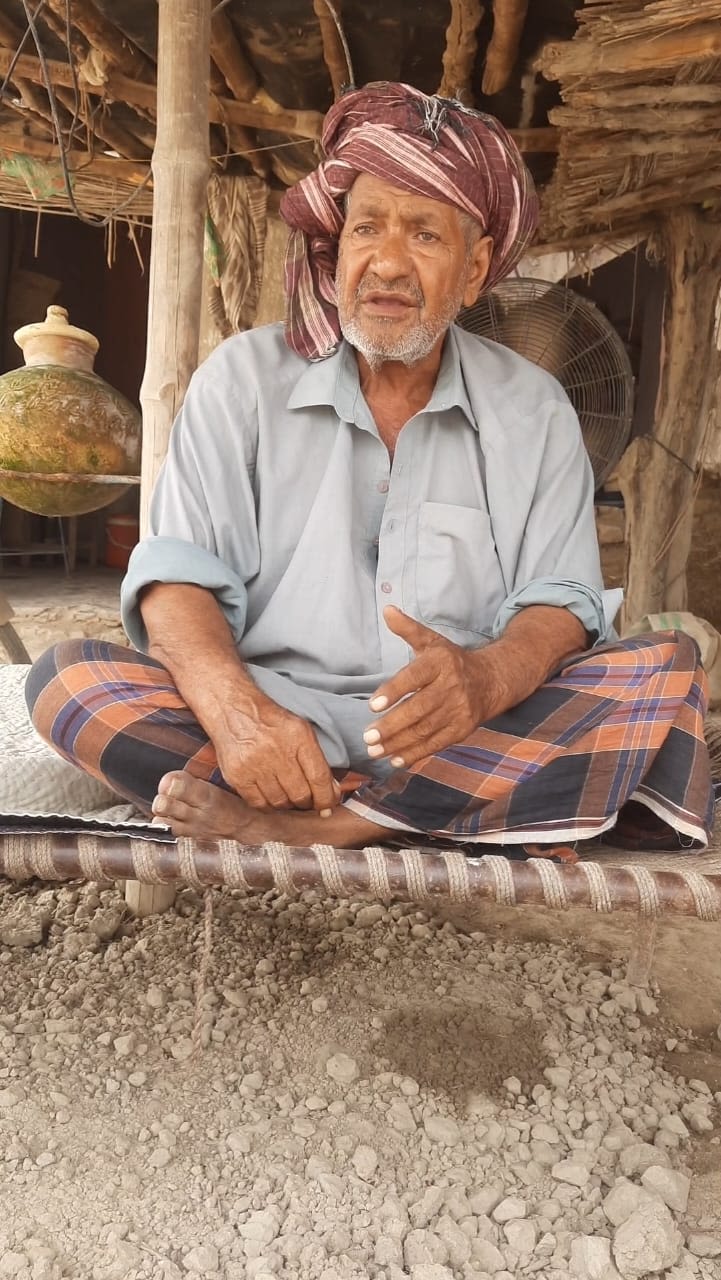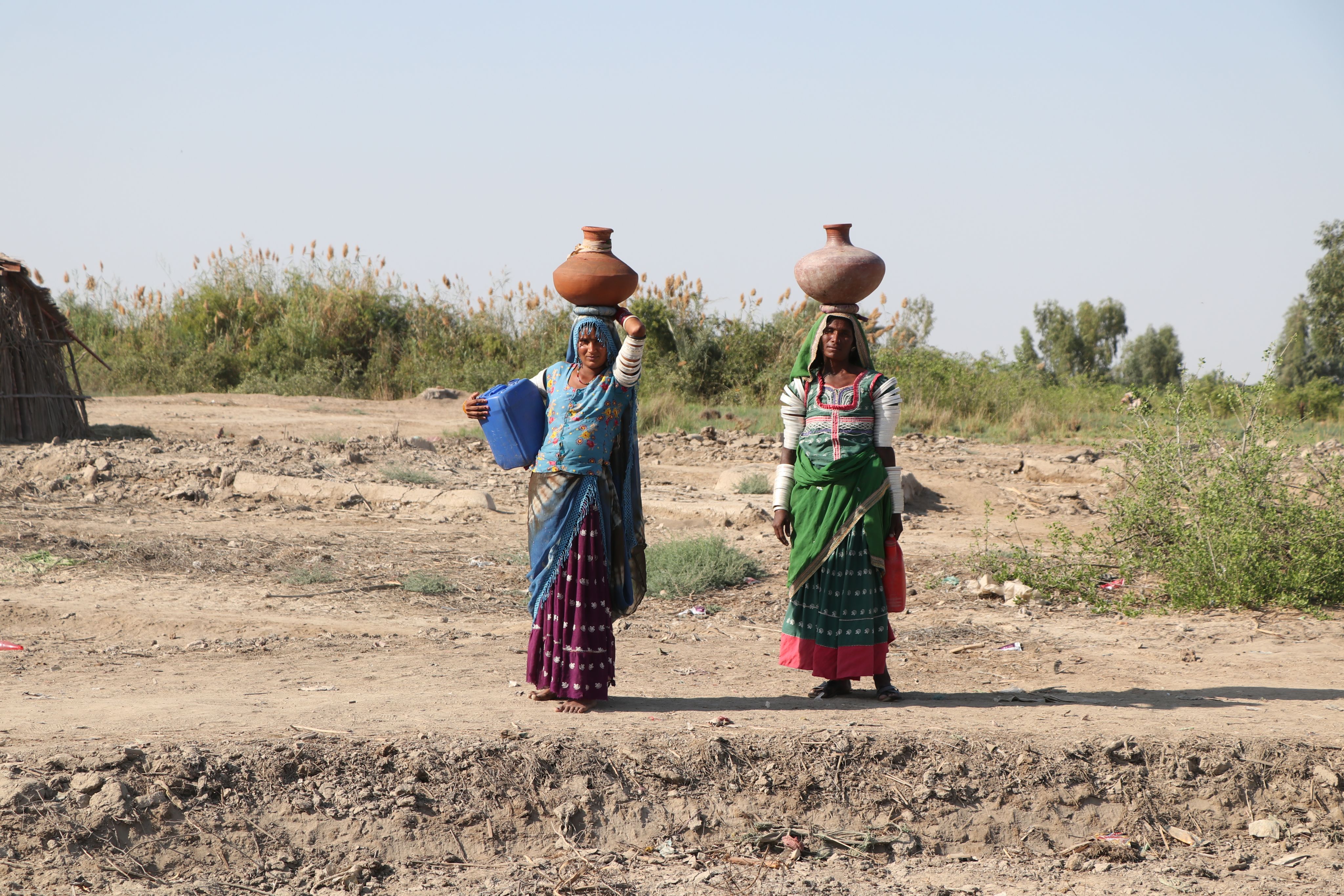COP28 ADVOCACY PACK
For Start Network members, partners and supporters.
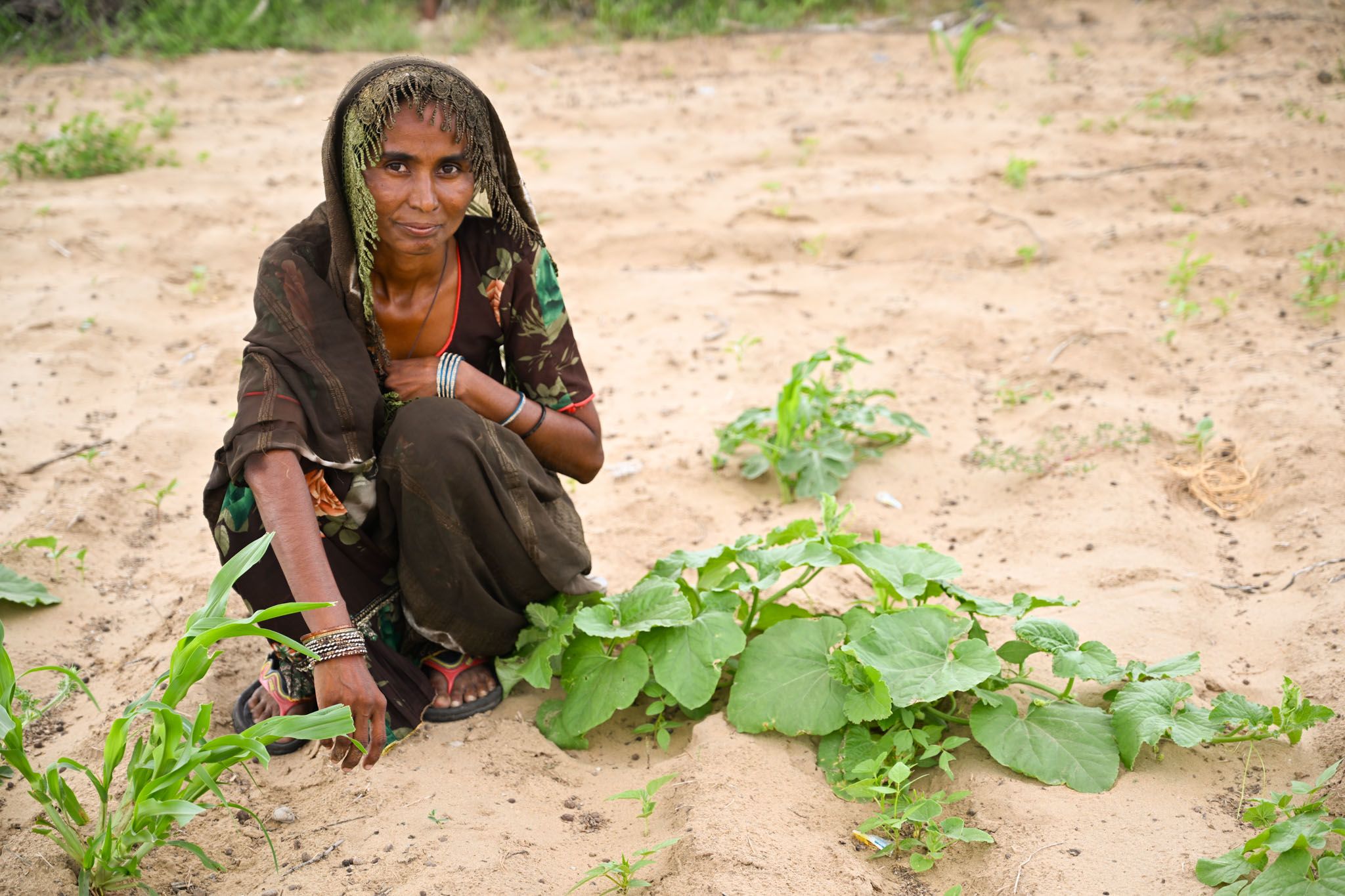
INTRODUCTION
The climate crisis is the crisis of this era. While the impacts of climate change are not felt equally across regions and countries, they are of global concern and threat. Yet, responses remain fragmented across sectors, and financial resource structures to tackle the crisis remain burdensome and inaccessible.
We’ve seen the climate crisis's effect on the environment, weather, and ecosystems, with human consequences being the most complex and intersectional. These holistic impacts on the human way of being are the ones least examined even though ironically, are the ones that connect us all.
The climate story is a human one and partly responsible for the loss of cultures, identities, livelihoods, and lives.
It is a global story, a local story, it is your story, my story, our story.
By sharing this story, we can act towards a better, more hopeful and sustainable future.
This advocacy pack is a collective effort with Start Network’s members and is for you to use!
📢CALL TO ACTION
- Share it within your organisation;
- Enhance your knowledge by diving into the resources set out;
- Use our key messages;
- Advocate for our policy asks;
- Download the social media graphics available in English, Spanish and French, and;
- Disseminate our collective work!
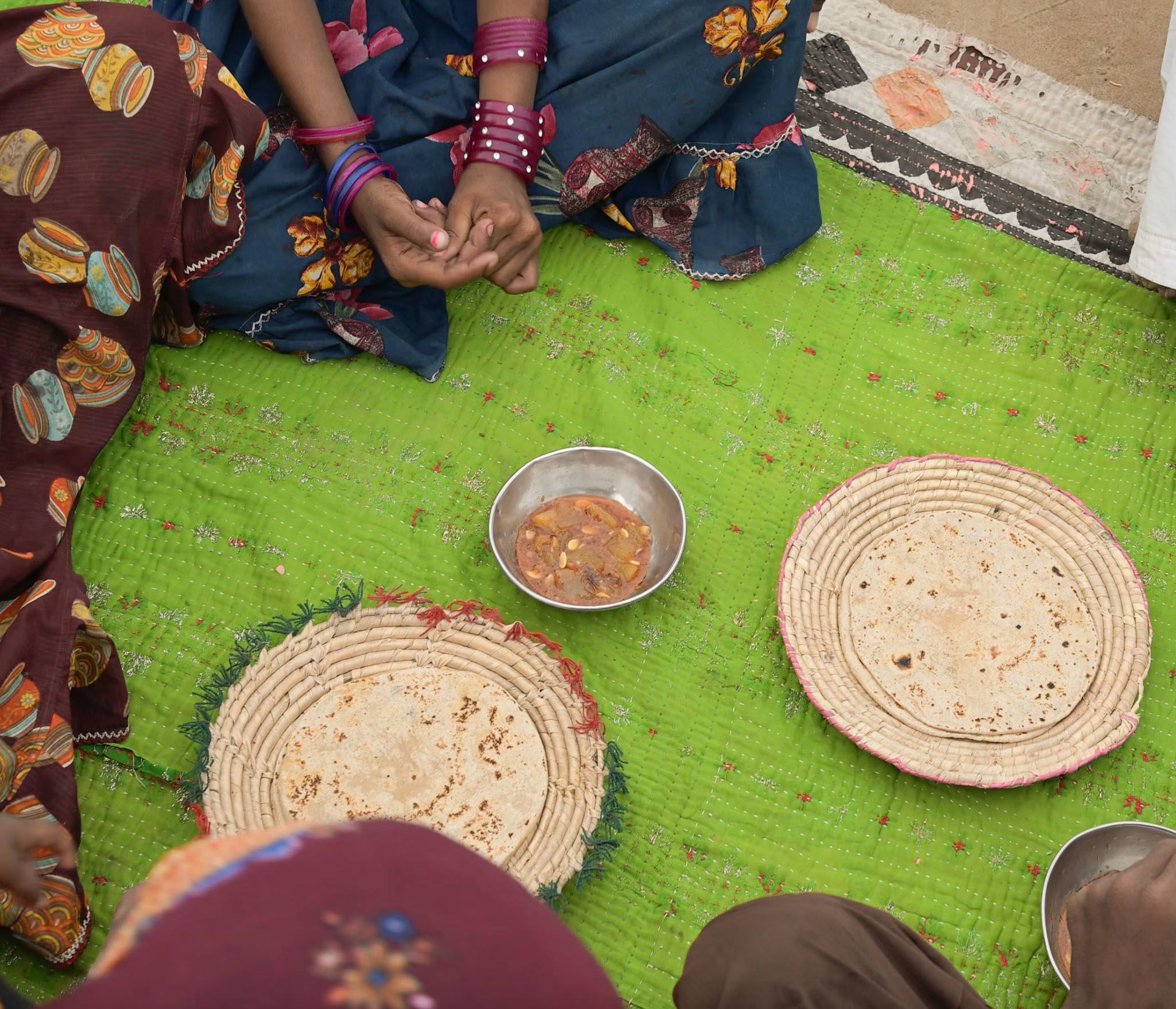
© Community World Services Asia
© Community World Services Asia
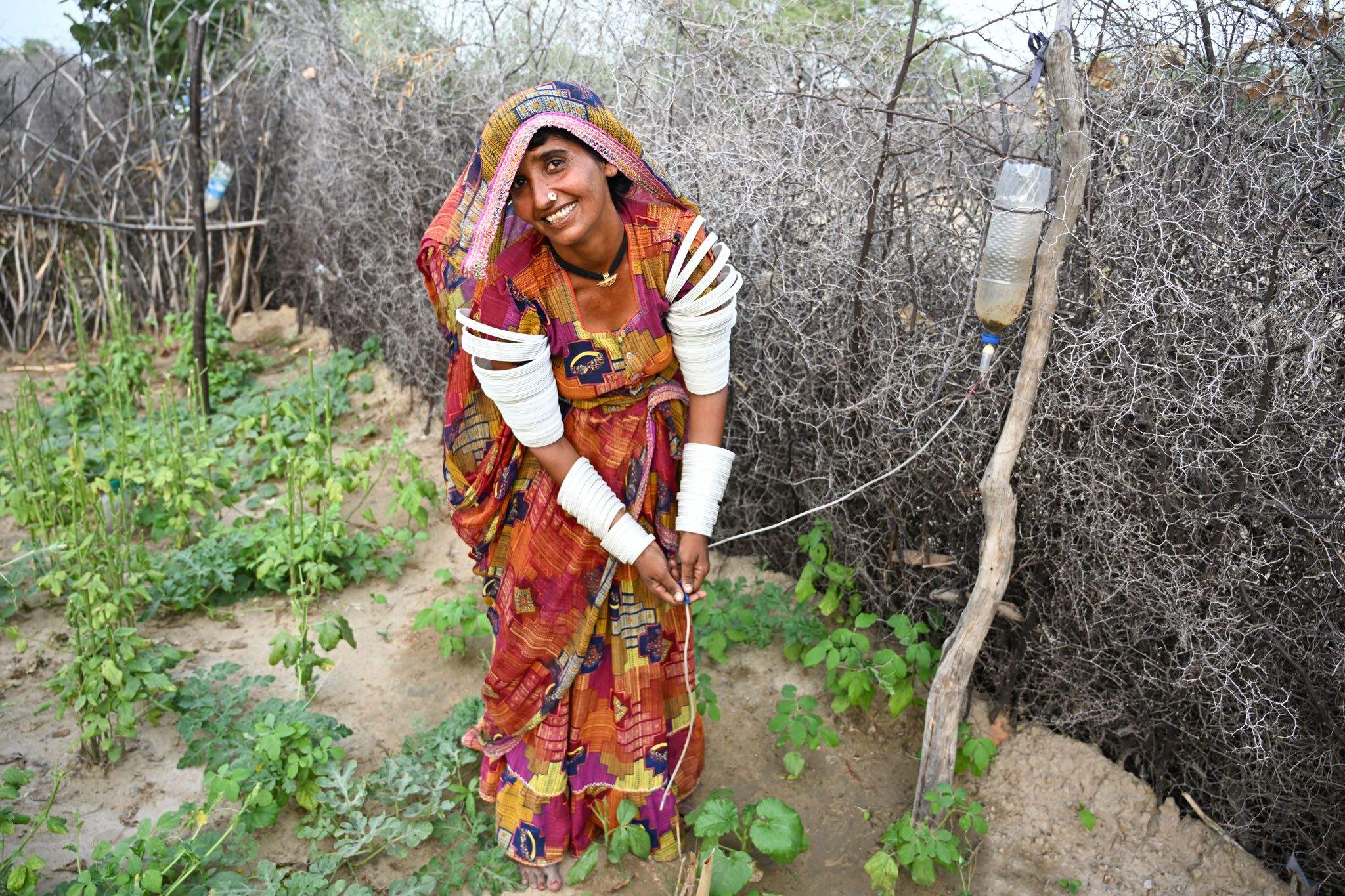
© Community World Services Asia
© Community World Services Asia
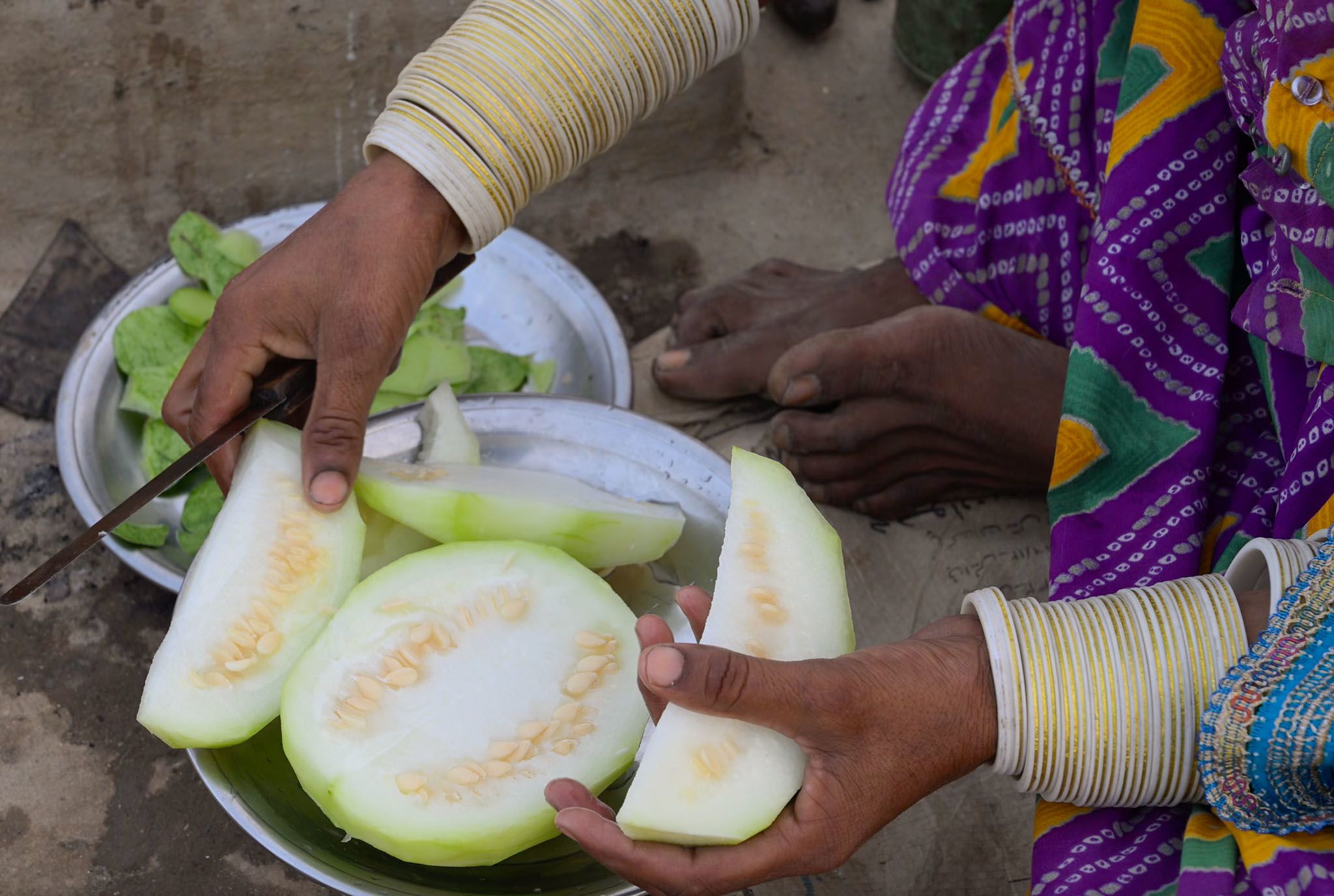
© Community World Services Asia
© Community World Services Asia
Climate change is exacerbating the frequency and intensity of humanitarian crises wherever they occur
Climate change is directly and indirectly impacting human health, ecosystem functioning, water, energy, food security and livelihoods. Climate risks are also growing rapidly as extreme weather-related hazards become more severe and spread across wider geographical areas. The impacts of climate change loss and damage will lead to increased demand for humanitarian assistance.
The financial and material resources to address these crises are not able to keep pace with the need. There is a growing funding gap for UN appeals, increasing from a 50% deficit of $15 billion in 20167 to a 78%, $43 billion, deficit in 2023. Furthermore, the GAR 2015 found that “a staggering 99.7% of all disaster events between 1990 and 2013 were smaller disasters involving fewer than 30 deaths or fewer than 5,000 houses destroyed”. Humanitarians need to recognise the scale of change, get informed and prepared for new risk patterns, particularly substantial increases in the number of small and medium scale emergencies.
New research commissioned by Start Network, Preparing for Climate Change Impacts on Small-Medium Scale Crises, sheds light on the impacts of climate change on small and medium scale crises. This research further explores Start Network’s Global Start Fund, a rapid humanitarian pooled funding mechanism managed by Start Network’s 80+ members. The report considers how the Start Fund could build upon current strengths within this new context.
Access the full report here.
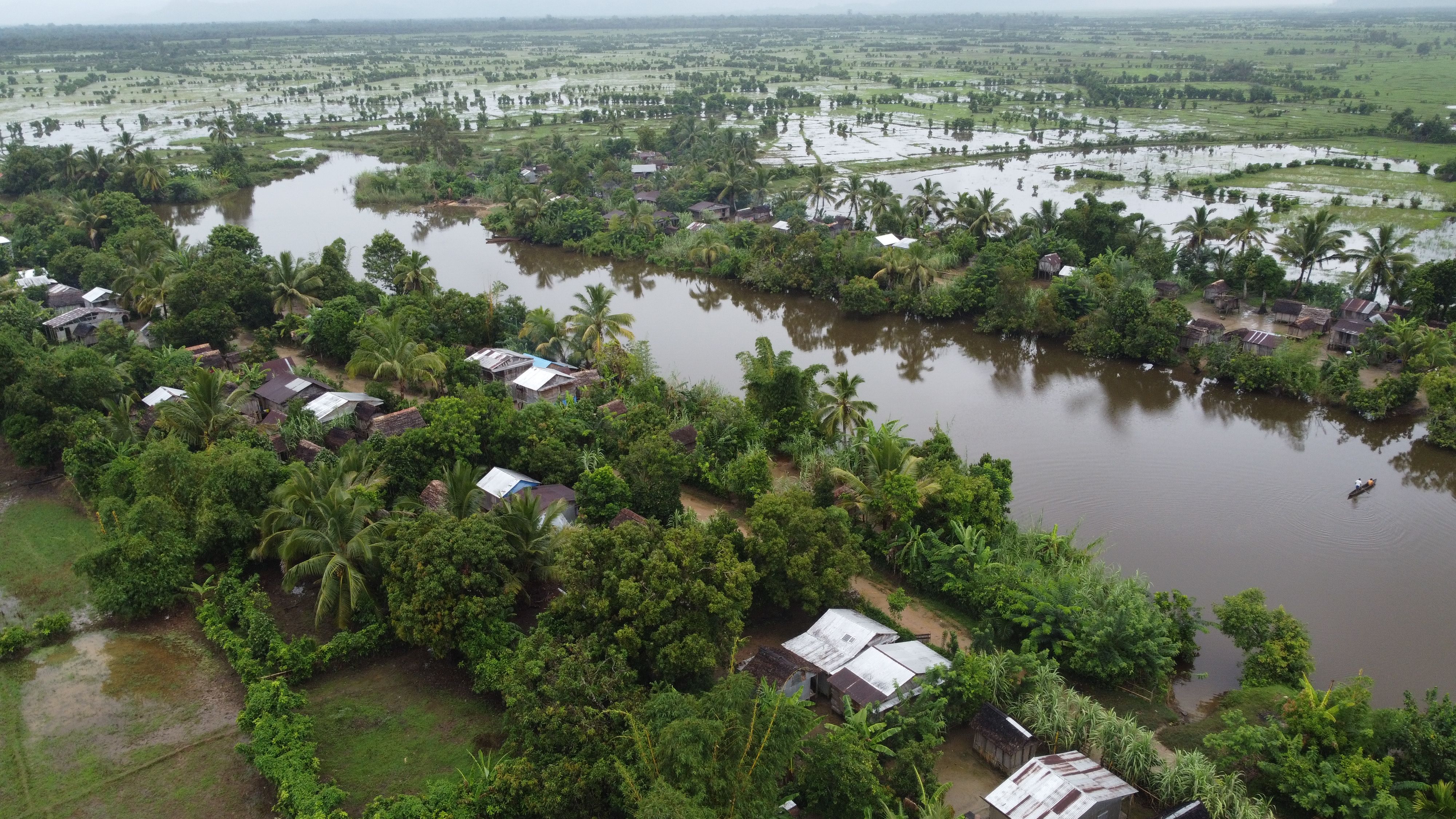
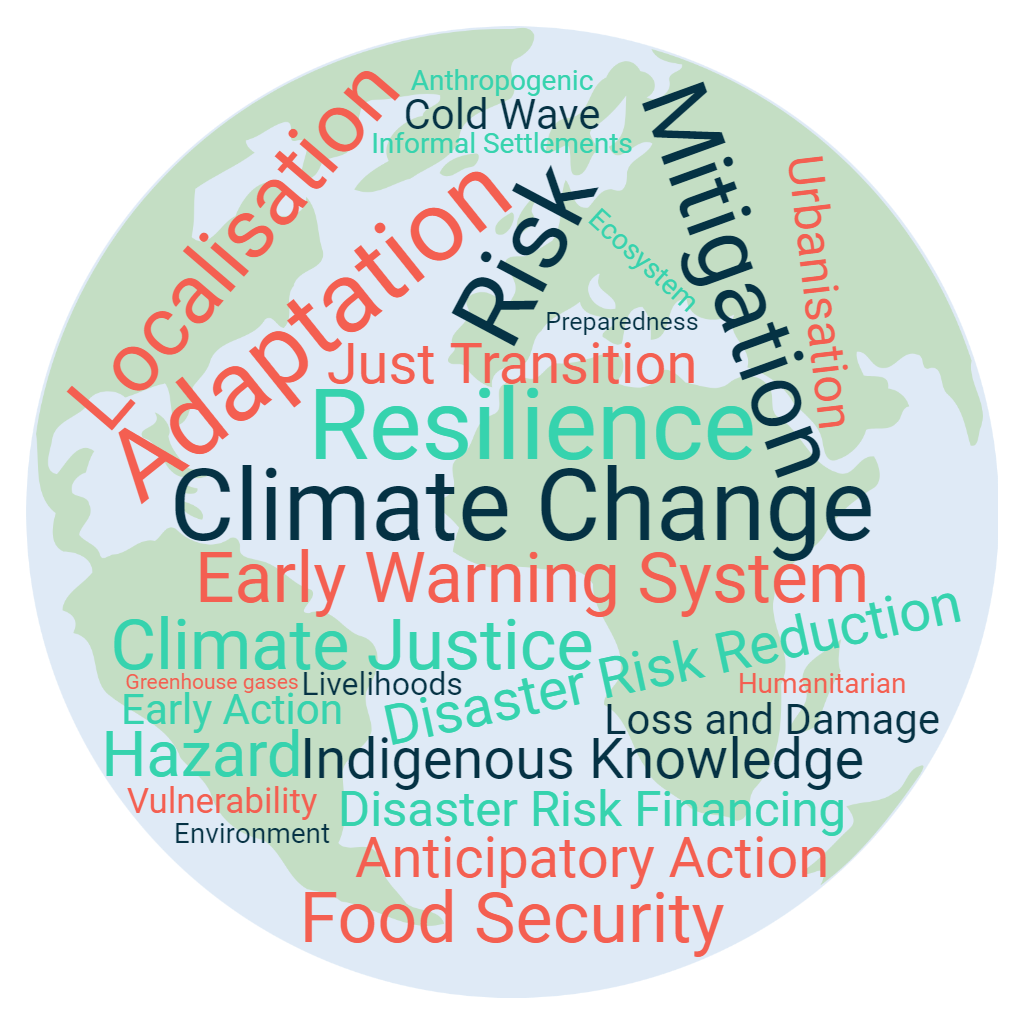
Terminology
Terminology across the humanitarian landscape can vary between different organisations. Throughout this pack, we rely on definitions from authoritative bodies and publications including UNDP, REAP, IPCC, UNEP and WMO.
WHY SHOULD OUR NETWORK CARE?
Climate change is exacerbating the frequency and intensity of humanitarian crises wherever they occur and is directly and indirectly impacting human health, ecosystem functioning, water, energy and food security, and livelihoods. The number of small and medium-scale under-the-radar disasters has increased fivefold in the last ten years and the scale of climate change disruption is projected to lead to a further massive increase.
As a global network of more than 80 local, national and international aid organisations focused on system change, we have a responsibility to advocate for change in one of our most pressed challenges, climate change. Start Network is well placed to tell these stories to showcase the humanitarian impacts of the climate crisis, enable change, and advocate for a systemic shift in the way we respond to crises.
COP28 is taking place in Dubai, United Arab Emirates from 30 November – 12 December, and we believe humanitarian actors from all diverse backgrounds must raise their voice and make visible the immense impact that climate change is having in the humanitarian sector.
What we are advocating for...
Beyond the headlines of extreme weather and severe disasters, Start Network has been addressing the humanitarian impacts of the climate crisis in a number of ways:
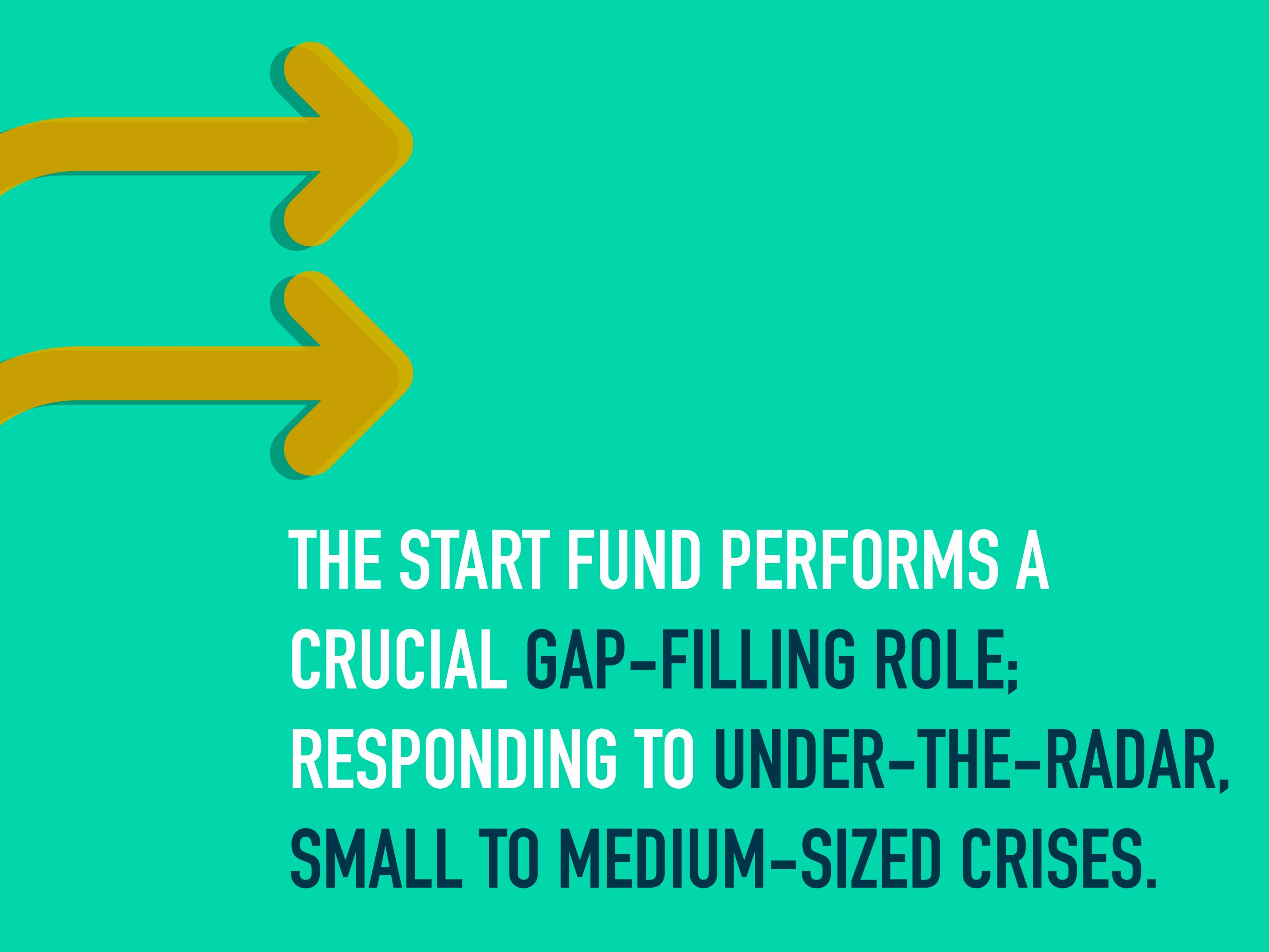
Performing a lifesaving and gap-filling role by responding to under-the-radar, small to medium sized crises through the Start Fund.
The Start Fund rapidly allocate funds and enables local members to respond to crises quickly, particularly to small and medium scale crises that are not supported by most other actors.
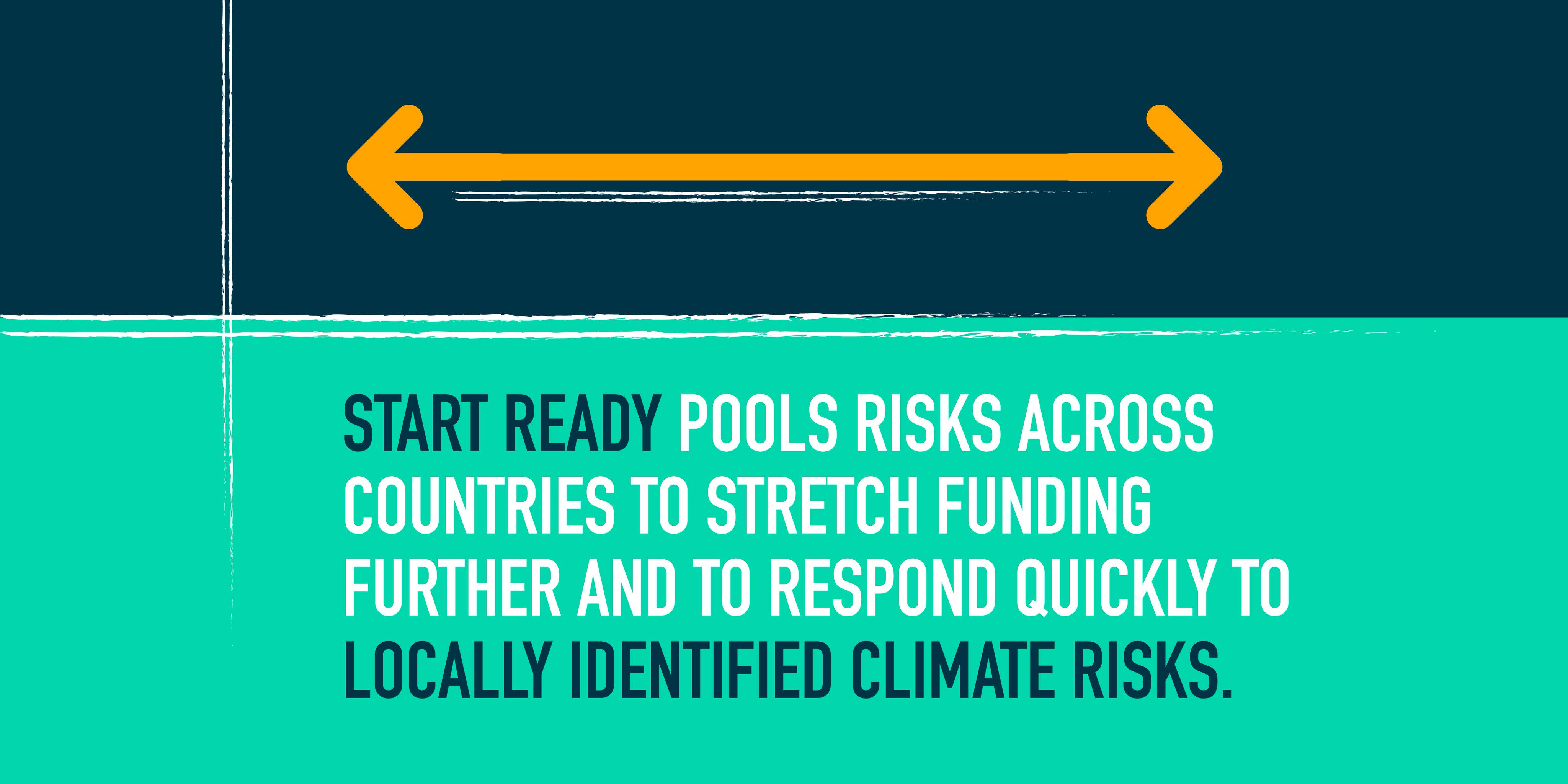
Protecting people at risk of climatic crises through innovative financing with Start Ready...
...which prepositions funding for predictable climate hazards. Start Ready pools risks across countries to stretch funding further and respond quickly to locally identified climate risks.
Evidence from our first year of Start Ready shows that funding was able to be stretched 1.6 times, providing protection to over 590,000 people in 8 countries from 10 climate risks.
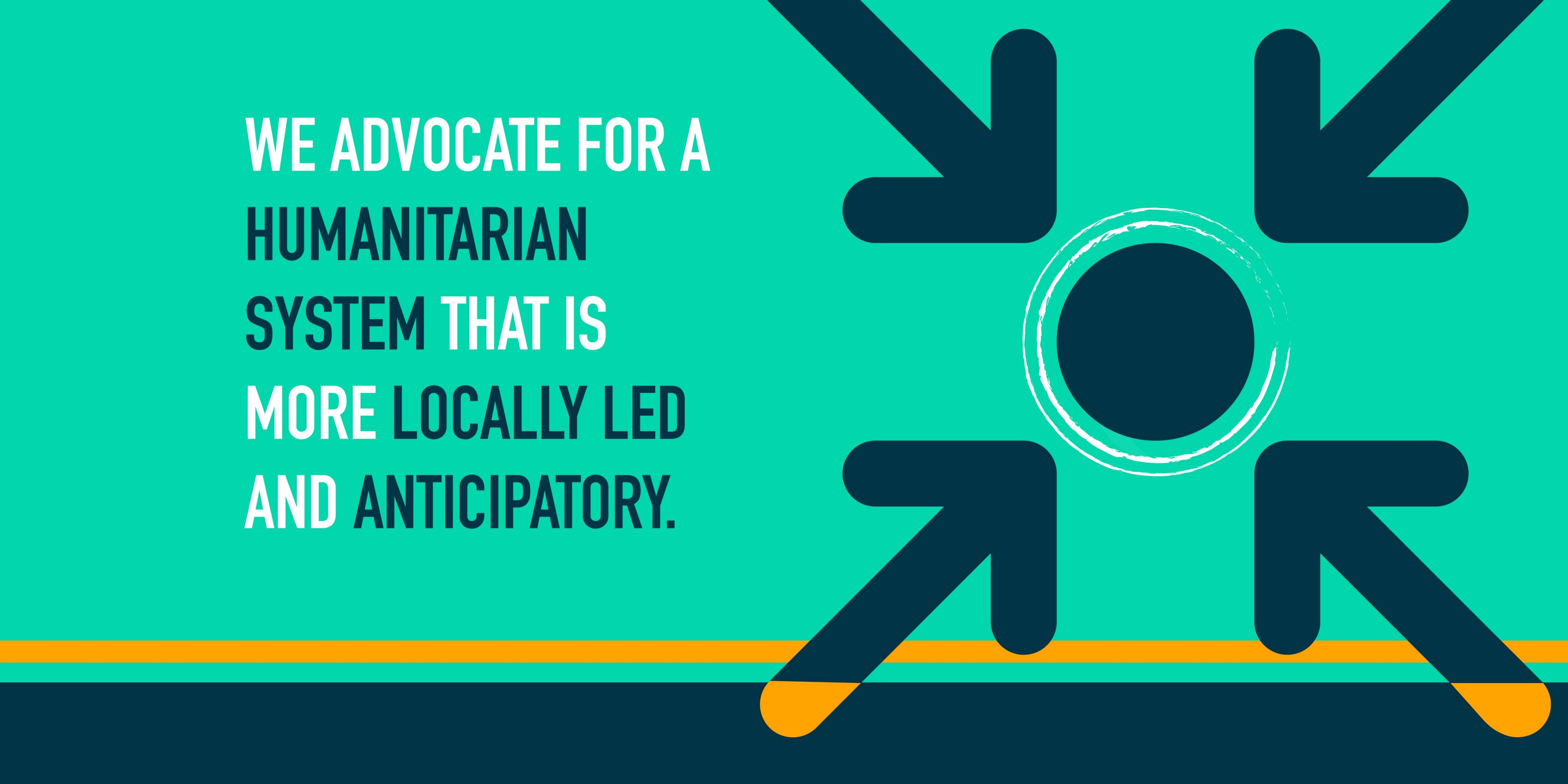
Driving systemic change that prioritises locally led action, and co-creating shifts in the way humanitarian action is approached, resourced, and delivered.
By shifting power and decision-making through the work of the locally led humanitarian hubs working in partnership with us we advocate for a humanitarian system that is more locally led and anticipatory.
Together with our network of more than 80 local, national and international global organisations working across five continents, we are advocating for:
1. Increased financing to address the losses and damages caused by the climate crisis.
Loss and damage is typically understood as the adverse impacts of climate change which have occurred and will occur despite mitigation and adaptation efforts. It is key that continued progress is made towards the targets on mitigation and adaptation, but it is also necessary to take steps to avert, minimise, and address current and future loss and damage. Previous analysis has estimated that the Global North is responsible for 92% of excess carbon emissions.
The Loss and Damage Financing Mechanism must be aligned with the calls from countries experiencing the biggest effects of climate change and cover both economic and non-economic loss and damage, including the impact on lives, societies, and environments. This should not be duplicative financing but rather in addition to existing financing from other sectors (e.g., humanitarian, development, and climate). Furthermore, the Loss and Damage Financing Mechanism should ensure that funding reaches people and communities affected and at risk of climate impacts.
2. A more locally led humanitarian response to climate risks.
The Grand Bargain is an agreement between some of the largest donors and humanitarian aid organisations, and calls for 25 per cent of global humanitarian funding to local and national responders.
Through our financing mechanisms, we are able to shift resources to national and local organisations to anticipate and respond to crises. Local communities and people who are disproportionately affected by climate change must have access to risk information, early warning systems, and pre-arranged financing to respond to crises in a timely and efficient way to protect themselves.
Local knowledge, expertise, and leadership must be recognised to strengthen responses to climate risks. More locally informed and inclusive approaches to humanitarian response involves supporting community-based innovation, recognising local and Indigenous knowledge, and including the needs of all people in their diversity (e.g., traditionally marginalised populations like women, youth, older persons, and persons with disabilities).
3. A systemic change in the humanitarian financing system, based on innovative, flexible, and proactive ways to respond to climate needs and reduce risk.
For some hazards it is possible to use science and risk modelling to determine the predictability and patterns of occurrence which can be utilised to act in anticipation or earlier in the evolution of the crisis.
The current humanitarian financing system is slow, reactive, and fragmented.
By shifting mindsets, resources, and financing to a proactive approach supported by financing that is released rapidly (and where possible in advance of crises) and responses that are led by actors within the crisis-context, it is possible to protect more people and reduce humanitarian impacts.
Anticipatory and early action must be complemented and connected to wider disaster risk management efforts to further reduce risks and continue to build resilience.
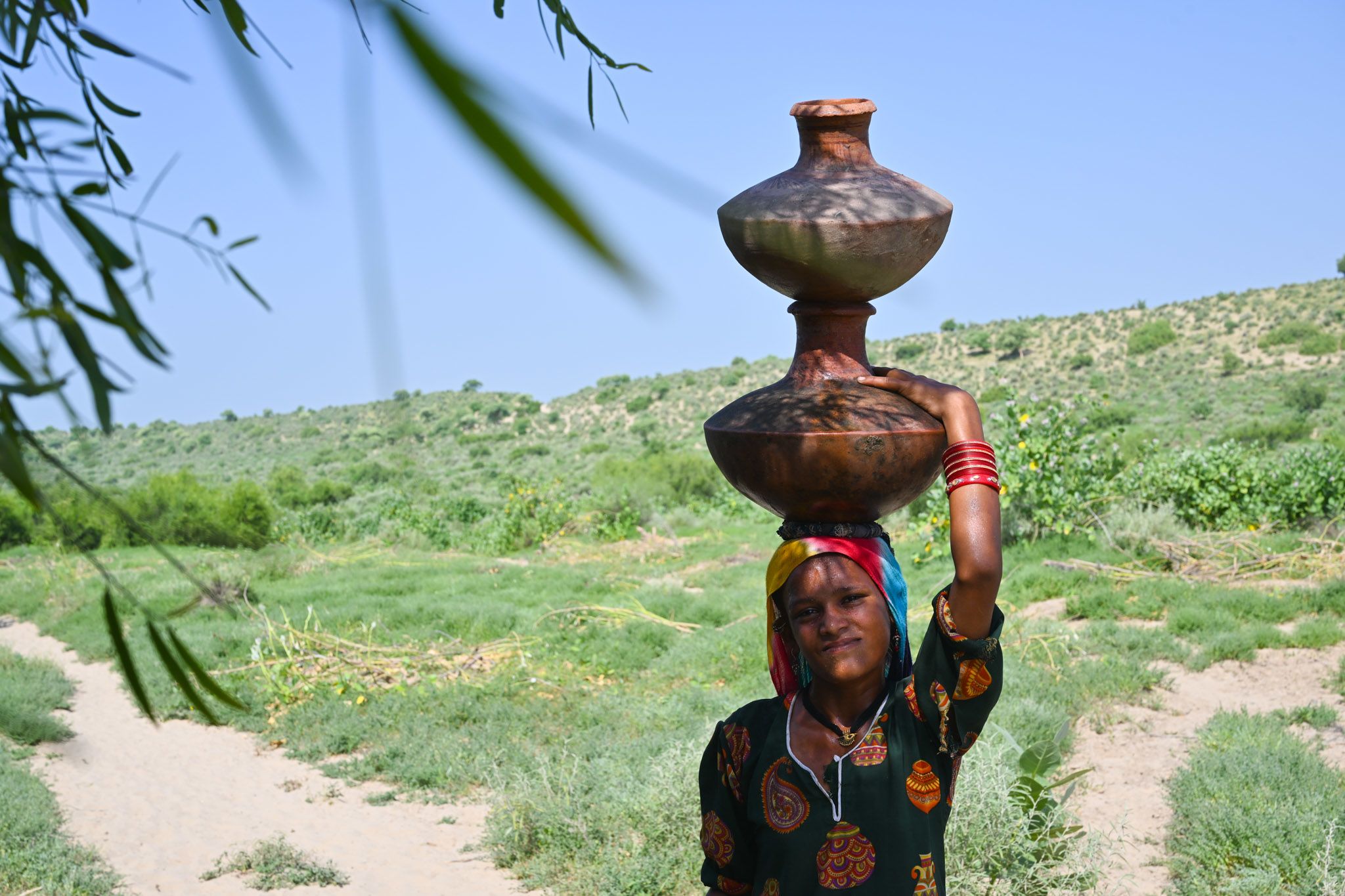
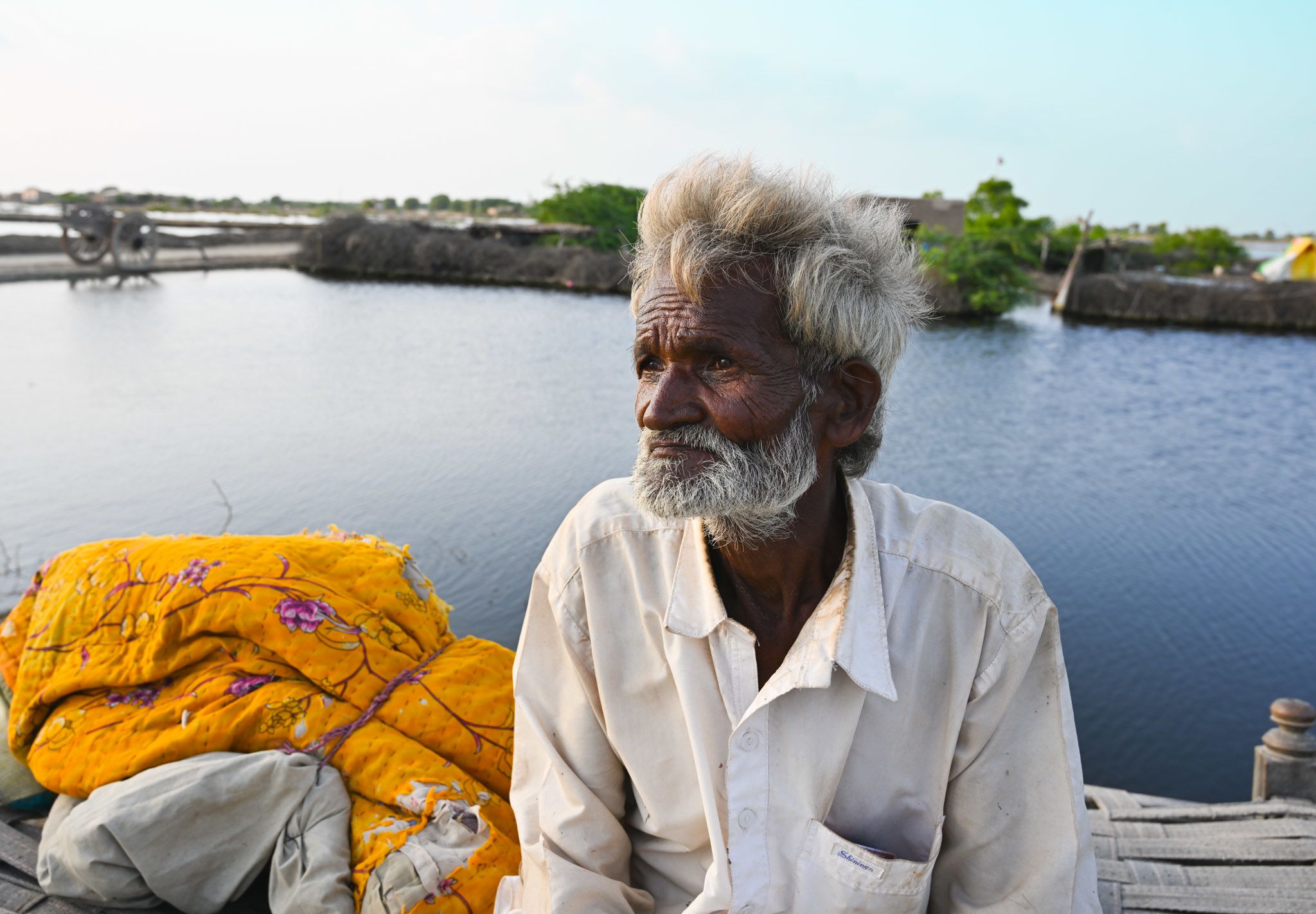
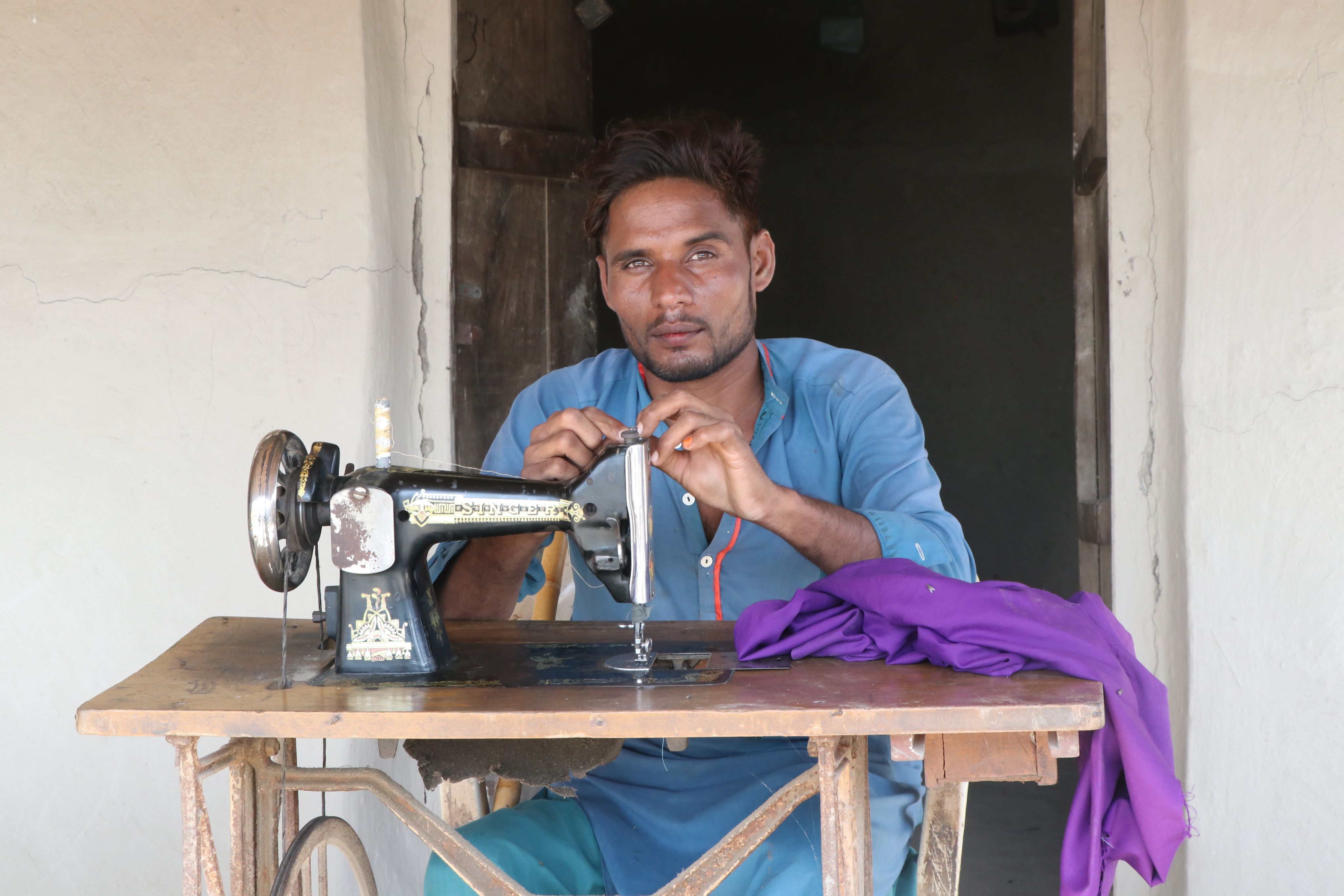
At Start Network, we believe that a more balanced international humanitarian system that shifts power to those closest to the frontline will generate more effective and appropriate support for communities affected by crises.
Our Regional Advisor for East and Southern Africa, Nelly Maonde explains how are two funding instruments, Start Fund and Start Ready support local communities by taking an anticipatory approach.
RAISING OUR VOICE WITH PURPOSE
As part of the road to COP28, Start Network has been undertaking a range of actions including:
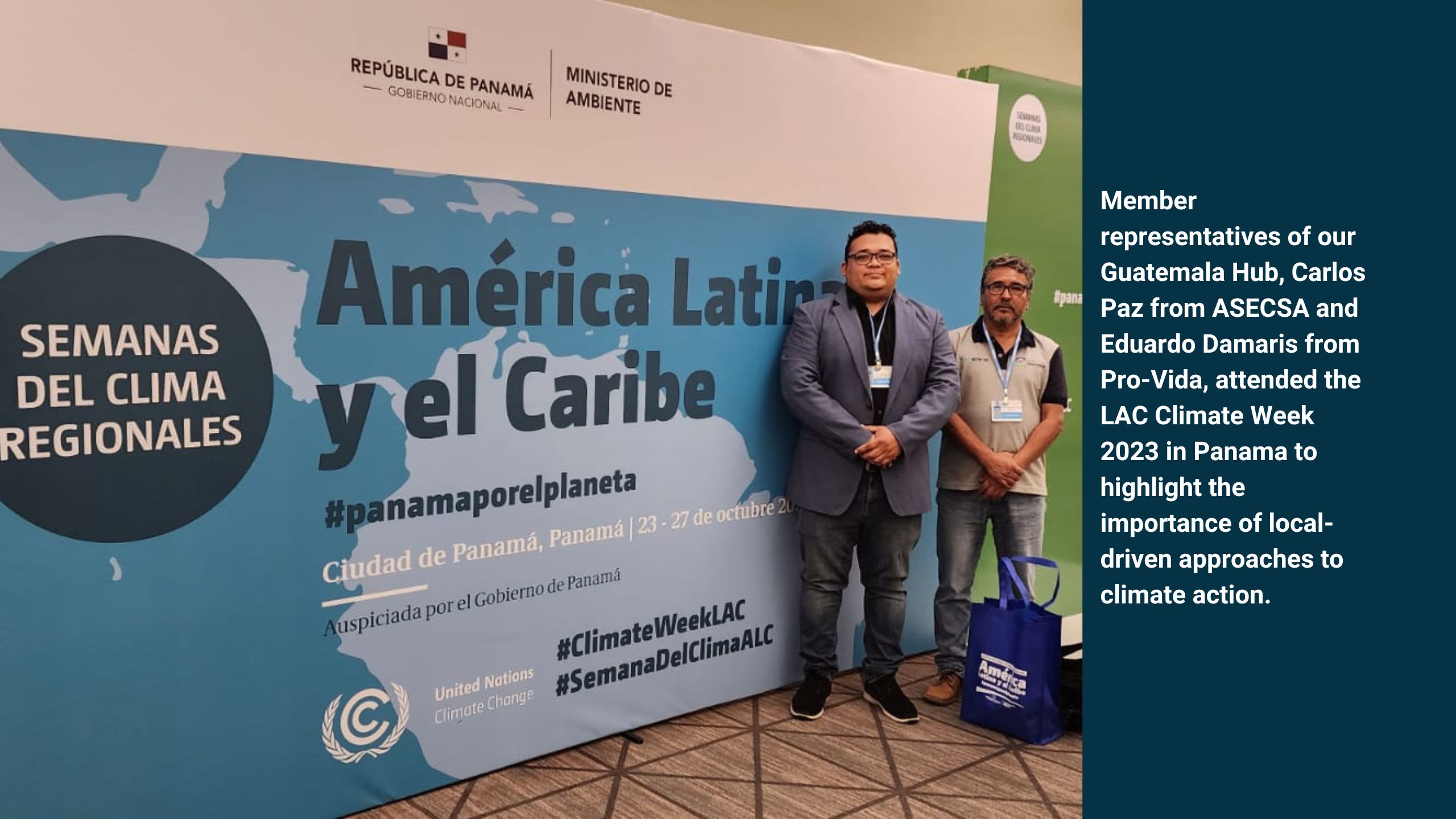
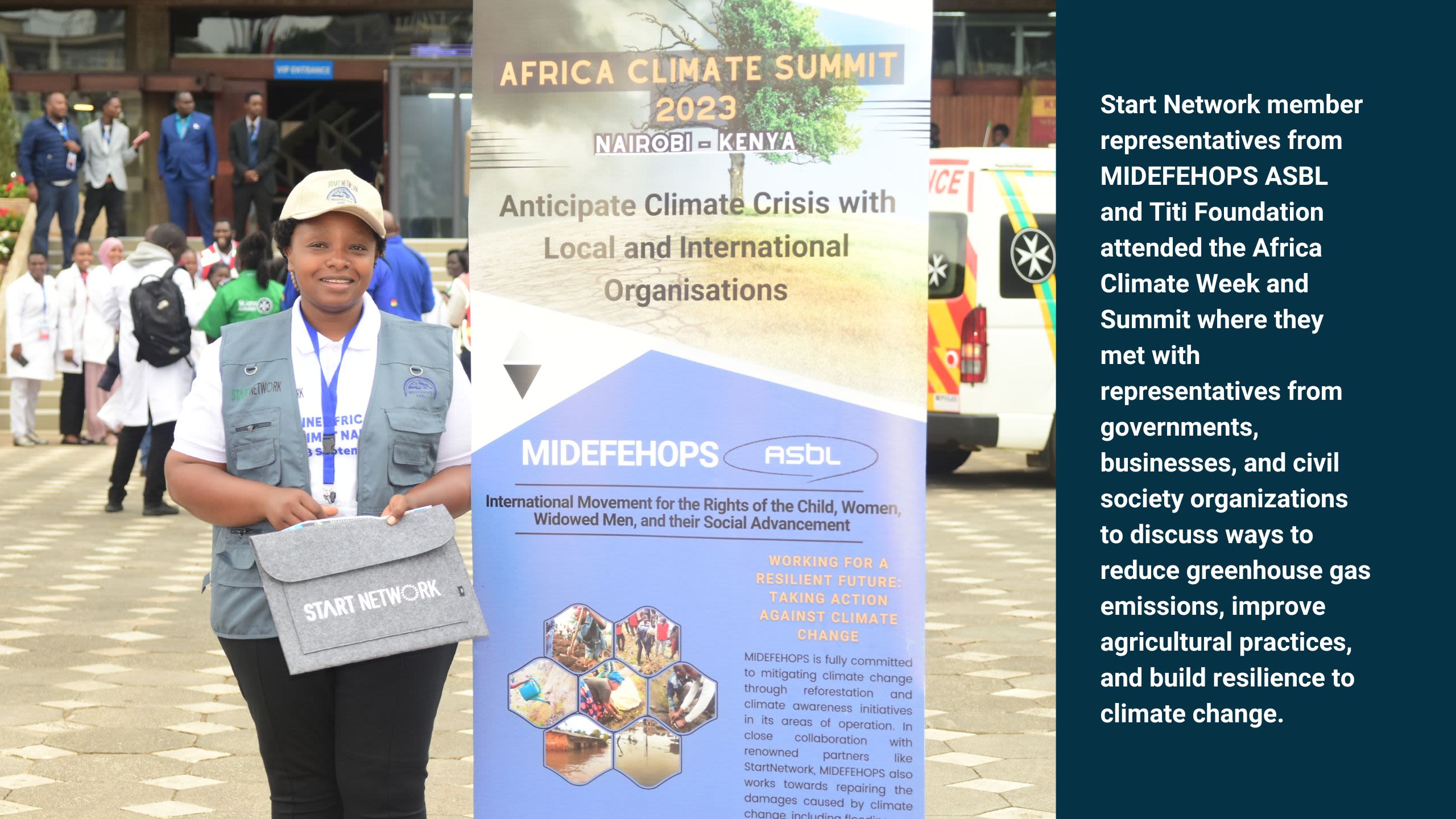
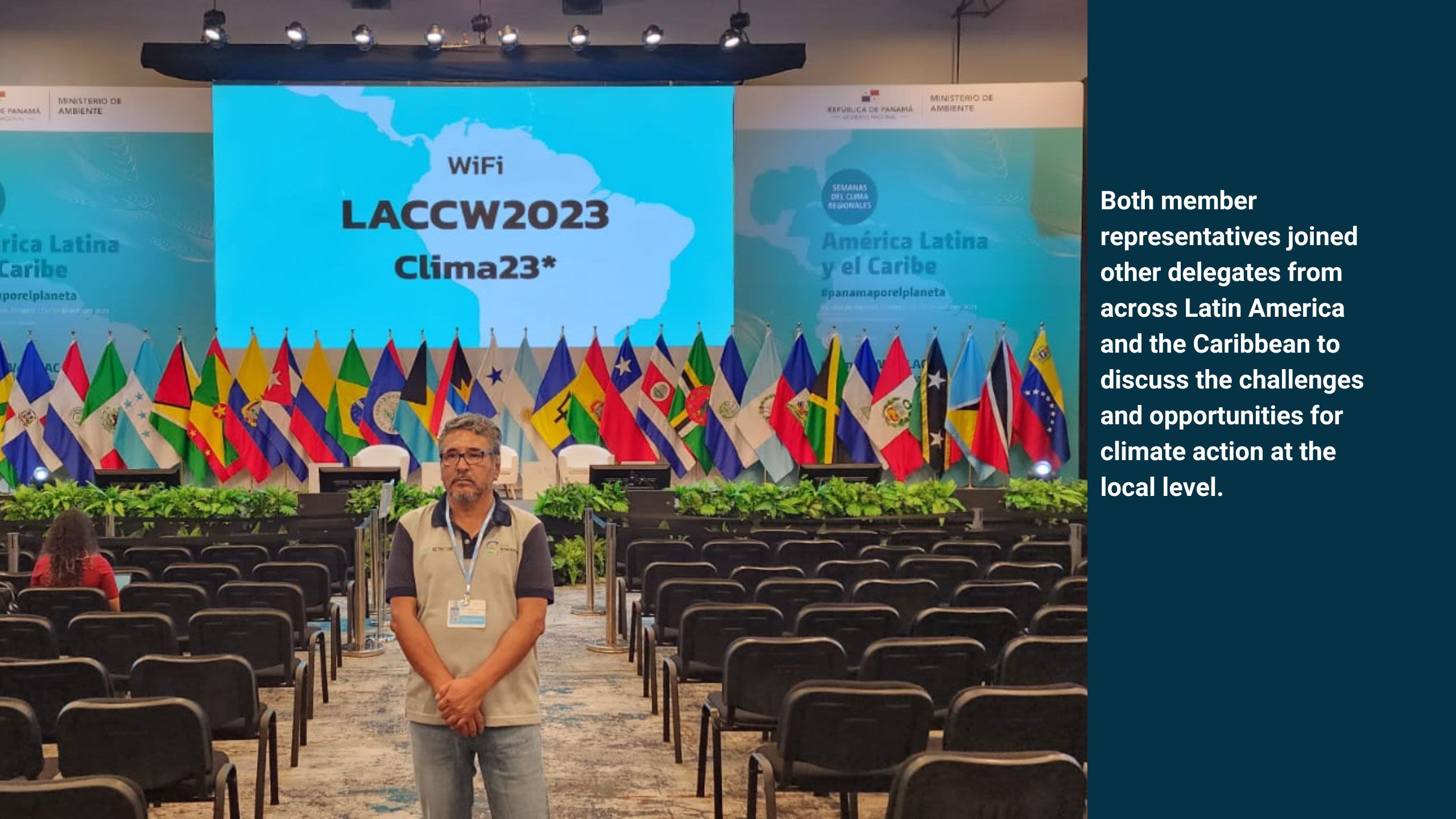
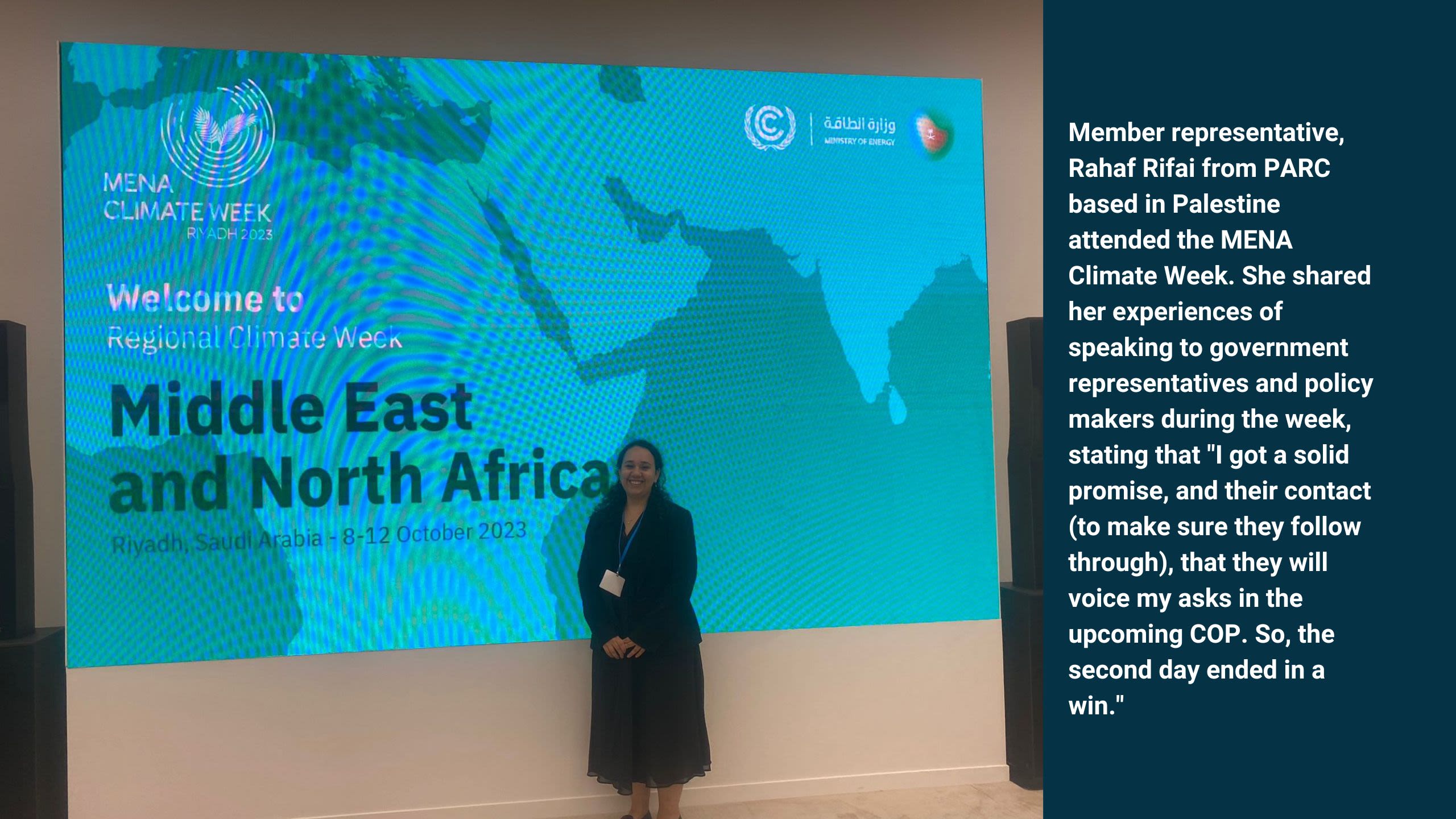

Member representatives of our Guatemala Hub Carlos Paz from ASECSA and Eduardo Damaris from Pro-Vida attended the LAW Climate Week 2023 in Panama to highlight the importance of local-driven approaches to climate action.
Member representatives of our Guatemala Hub Carlos Paz from ASECSA and Eduardo Damaris from Pro-Vida attended the LAW Climate Week 2023 in Panama to highlight the importance of local-driven approaches to climate action.



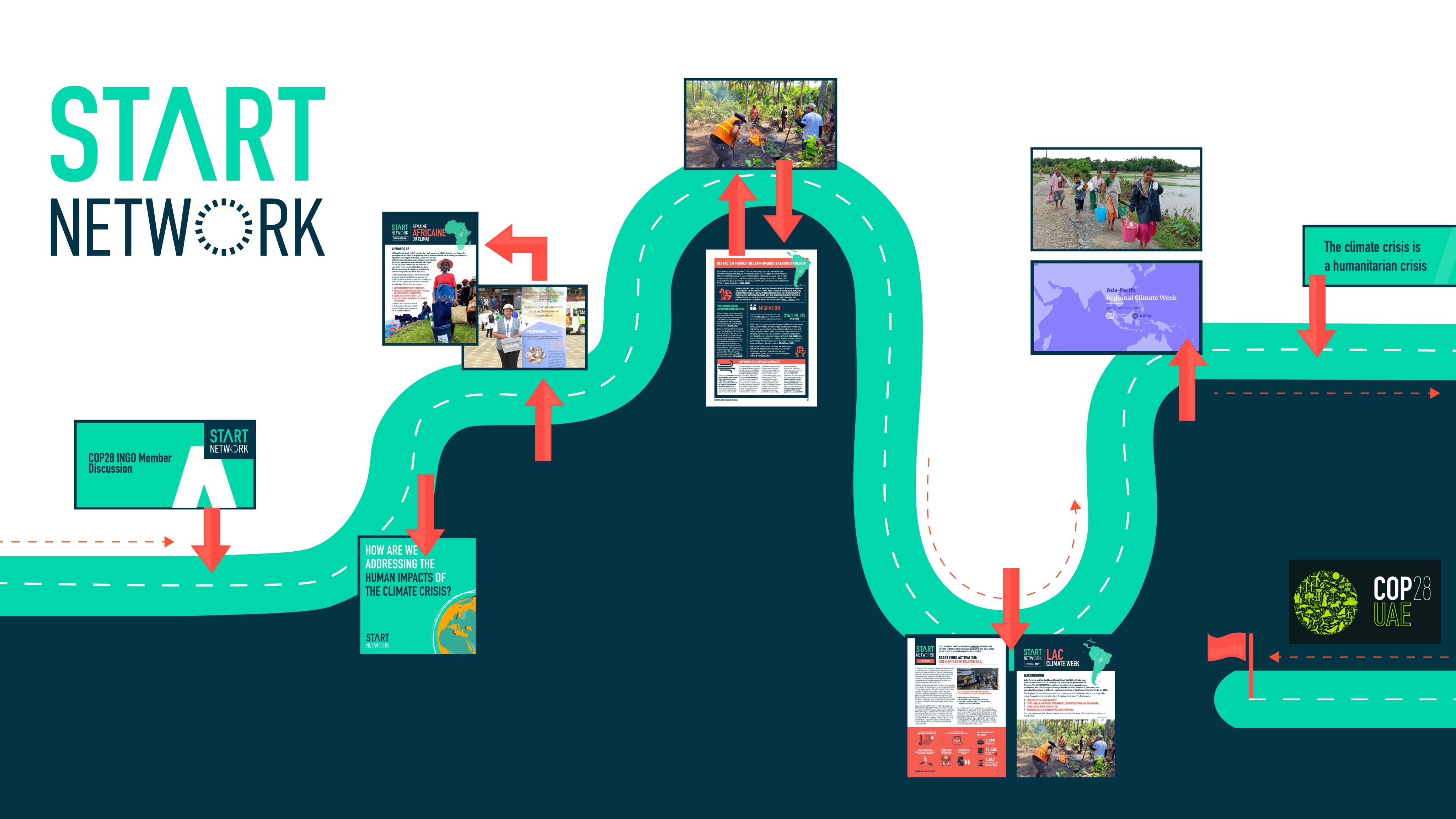
Voices from our members
Many of our members are already advocating for action in the face of the climate crises. Here we share insights, approaches and useful resources from across our network.
Welthungerhilfe
STORY FROM BORENA ZONE, OROMIA REGION, ETHIOPIA
Tato Buke: Getting water nearby has relived us from a huge burden
All her life, Tato Buke had to travel for two hours to fetch water. This used to be daily life experience she remembers. The 39 old and mother of seven lives in Teso Kebele of Miyo district bordering Ethiopia and Kenya. As far as she remembers, access to clean water has been a challenge for generations in their areas. As teenager, she used to travel the hills to fetch water for her parents. As an adult and a mother, she was faced with the same fate. “We carry 20 jerry cans of water on our backs. Only economically stronger ones use donkeys and horses to fetch water from the river which is not suitable for drinking.
Children used to be exposed to waterborne diseases because of drinking unclean water. Several children missed classes because of diarrhea and other water and hygiene-related diseases. This now is over since a water point was constructed in the village where Tato lives within Welthungerhilfe’s project on innovative approaches to promote the resilience of agro-pastoralists in East Africa (SRAPLEA).
For Tato, it was like a dream to get water within 15 minutes of walking distance from her home. “Having the water this close relieved us of a huge burden. Specially we the women are the ones who are responsible for traveling the long-distance fetch and carry the water – mostly a jerry can of 20 liters. We no longer travel the overwhelming distance to fetch water now” She sates.
Tato also said before the recent rehabilitation, the water didn’t flow much. Due to this, there were long waiting queues. “After the rehabilitation, we get a good regular flow of water with no interruption” Tato concludes.
About the Project
Innovative Approaches to Promote the Resilience of agro-pastoralists in East Africa (SRAPLEA) is an integral part of a multi-country program by Welthungerhilfe (WHH). The project contributes to sustainable improvement of livelihoods, well-being and food security of agro-pastoralist communities in arid and semi-arid areas of Ethiopia, Kenya and Uganda.
Find out more here.
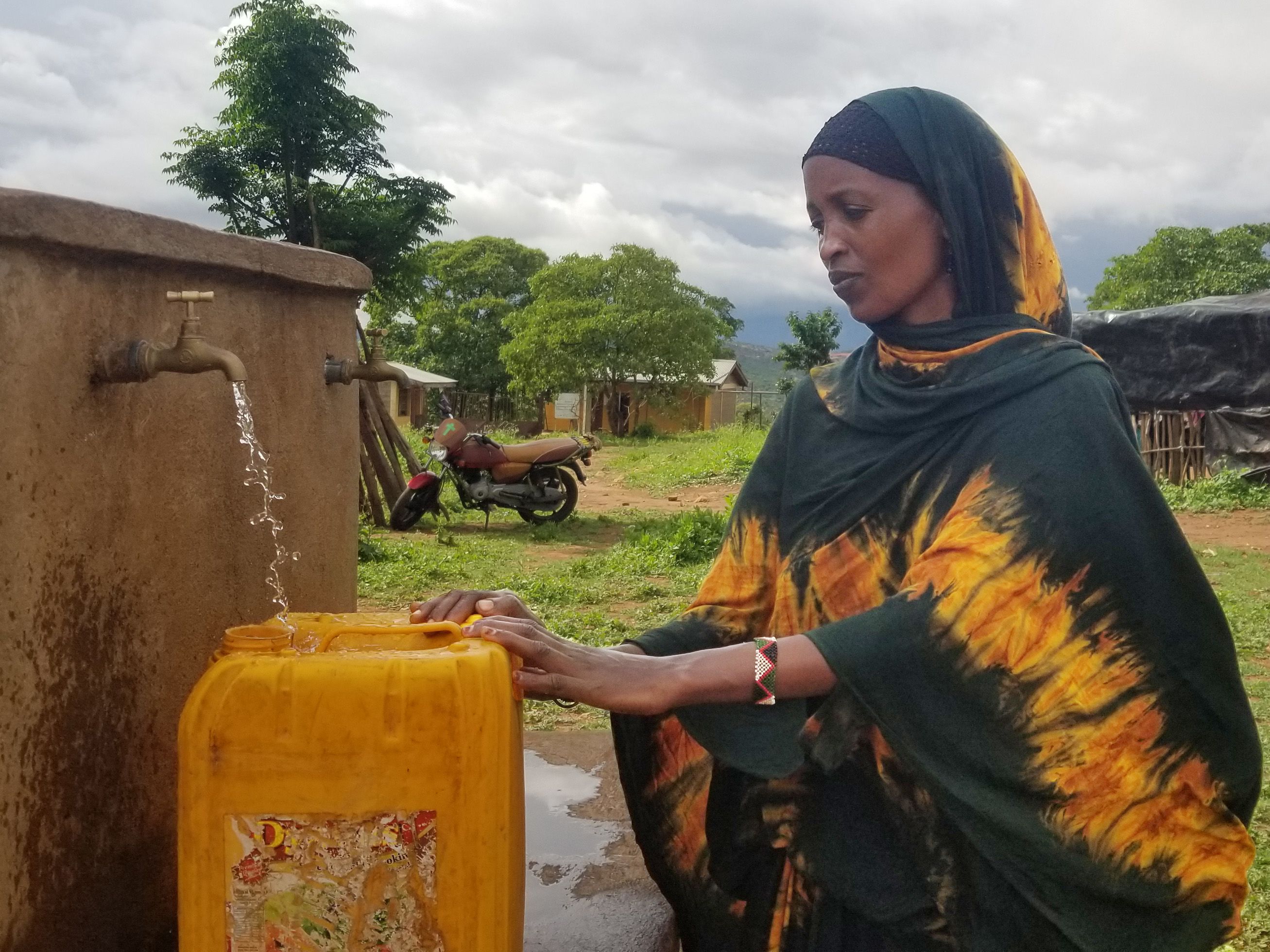
© Fasika Asrat / Welthungerhilfe
© Fasika Asrat / Welthungerhilfe
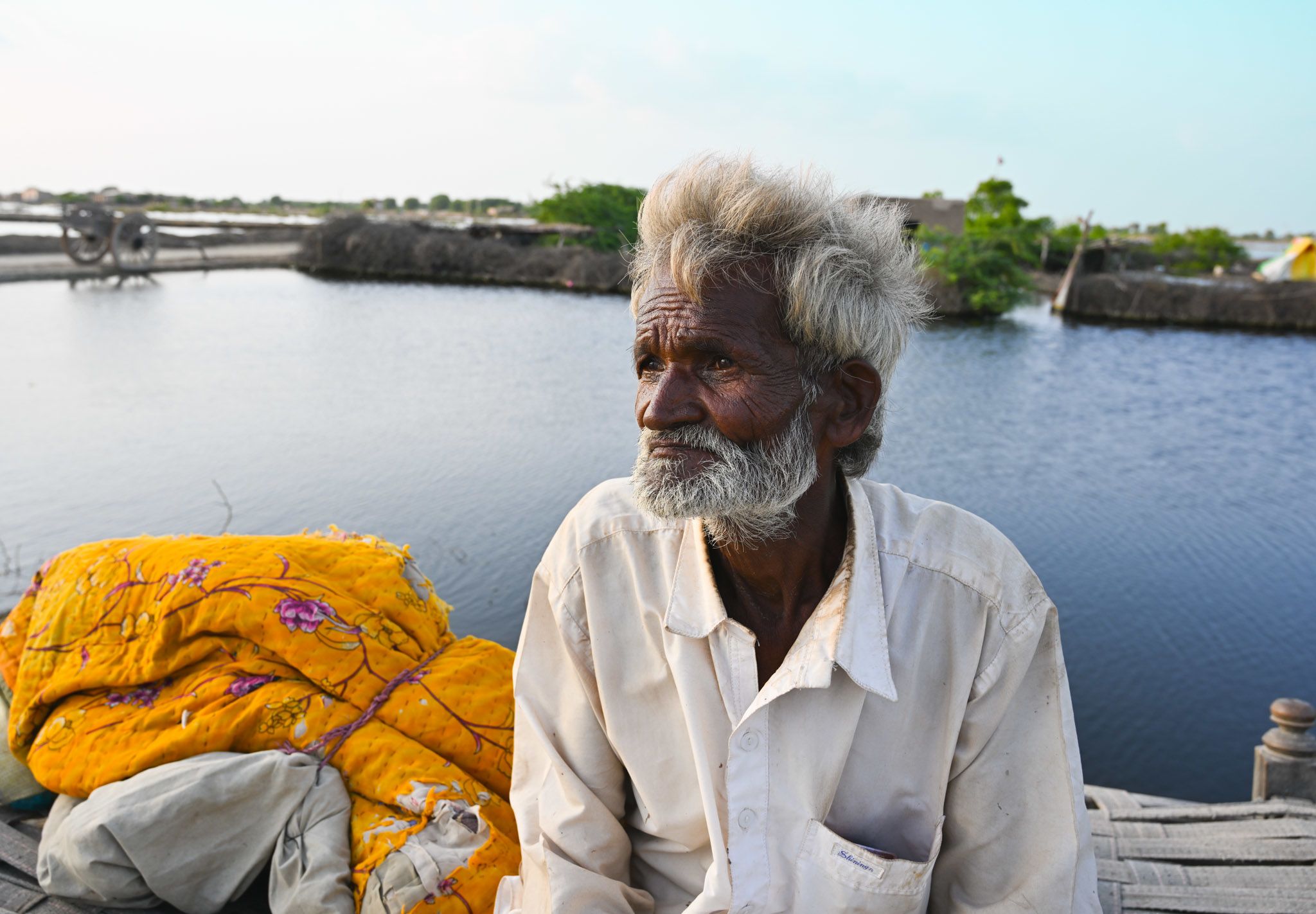
World Jewish Relief
World Jewish relief shares the story of Bishnudev Mahato and his family in the face of the climate crisis.
Bishnudev was born into a poor family, in the Mahottari district of Nepal, inheriting only 0.43 hectares of land from which he needed to support his wives and children.
After decades of hard work, the family were finally able to feed themselves, and send the younger children to school. But this has all been threatened by the changing climate; when we met Bishnu, he was again struggling to make ends meet as his village was constantly hit by droughts and floods, and his crops often failed or were destroyed.
World Jewish Relief partnered with an organisation called Community Self-Reliance Centre (CSRC), to support Bishnu and his fellow villagers. Through several workshops, trainings, and provision of seeds, CSRC supported the farmers to understand how the climate crisis is affecting them, and to reform their farming procedures. As a result, Bishnu has expanded his vegetable farming substantially, with a diverse range of crops that are more resistant to droughts, such as beans, cabbages, cauliflowers, chillies, bitter guard, and aubergine.
Find out more about the work of World Jewish Relief in tackling water scarcity, transforming livelihoods and empowering women here.
HANDS Pakistan
HANDS Pakistan shares insight into their work on building resilience with older persons and person with disabilities ahead and during the aftermath of climate-induced floods.
Climate change-induced disasters, such as floods, have become increasingly prevalent in recent years. These events not only disrupt communities and environments but also have profound emotional, physical and economic implications on individuals, particularly vulnerable populations such as older citizens and those with disabilities.
District Dadu of Sindh, Pakistan, is one of the worst affected provinces for flooding. HANDS, in collaboration with Help Age International, initiated a project to meet the urgent needs of flood-affected people in the province.
Resident stories: Muhammad Soomar
In 2022, floods home destroyed Soomar’s home, livestock, and agriculture – his means of livelihood and primary source of income. This destruction severely impacted his and his family’s economic stability, psychological wellbeing, physical health and quality of life. Soomar was faced with rebuilding his home from scratch. For older persons, such impacts can often lead to isolation.
HANDS initiated an Emergency Response project in his village and provide counselling sessions to Soomar to address the trauma he had experienced due to the flood and it’s impacts.
The emotional support and coping strategies he gained from counselling gradually helped him overcome the anguish caused by his losses. The restoration of his sense of self-worth and the rebuilding of his confidence were significant milestones in his journey toward recovery. Empowered by his newfound emotional strength and inspired by his own journey, Soomar took the initiative to support and motivate other older individuals facing similar challenges. His firsthand experience made him a credible source of inspiration, enabling him to connect with and uplift his peers.
HANDS reflect on Muhammad Soomar's story as serving a poignant testament to the multifaceted impacts of climate change-induced floods on older citizens. This case further underscores the significance of targeted interventions that encompass emotional healing, economic rehabilitation, and community engagement. By addressing the unique challenges faced by older citizens, communities and organizations can pave the way for a more inclusive and supportive future in the face of climate change.
Community World Service Asia
Community World Service Asia shares insight into their climate action and risk reduction projects. One such project includes enhancing the resilience of homes in the face of streamside flood risks.
In 2022, Afghanistan experienced severe droughts, flash floods and earthquakes resulting in more than 39 million people being in need of humanitarian assistance and 6 million being at risk of famine.
Jameela, aged 52, and 350 other households residing in Sarband village are threatened by flash floods as their village is positioned between two natural hazards: river floods resulting from the overflow of water in the Kunar River to the North, and the peril of flash floods emanating from the Southern side, where towering mountains are situated. The presence of potential catastrophes overshadows the villagers’ lives, disrupting their daily activities and filling them with a constant sense of uncertainty.
A glimmer of hope manifested itself to Jameela and her household of 15 people - the construction of a protective wall, implemented as part of the disaster risk reduction project by Community World Service Asia and the Ministry of Foreign Affairs of Japan. This vital initiative effectively reduced the risks posed by flash floods and provided the villagers with a renewed feeling of security and stability. This significant achievement serves as a testament to the community's unwavering determination and strength in confronting and overcoming adversity.
To find out more and access further resources click here
CAFOD and Caritas
CAFOD, Caritas Bangladesh and Caritas Denmark released a report on localisation perspective on the humanitarian/development nexus in the context of climate change-related hazards, risks, vulnerabilities, resilience, anticipatory action and emergency response.
The report identifies several critical inter-related resource issues including:
1. Limited direct access to funding for national and local actors
2. Constraints in accessing indirect cost recoveries (ICR) for national and local actors
3. Overall funding available for anticipatory funding remains very small
4. Fragmented disaster – development funding architecture
The report concludes by setting out a number of priority recommendations on more effective anticipatory action (AA), developing technical standards and guidelines for locally-led AA; amending funding modalities to support direct access to finance for local actors implementing AA; amending funding instruments to incentivise an anticipatory approach; amending NGO partnering policy and modalities to create effective partnerships between organisations; and developing a multi-agency Framework for Action for a shared approach to AA implementation.
Rights Lab at the University of Nottingham working with Bangladesh partners, Caritas Bangladesh, Caritas India and OKUP, supported by CAFOD also conducted research and prepared a report aimed at understanding the intersection between trafficking, migration and climate change along the Bangladesh-India Sundarbans border in order to support active programming for climate resilience in communities.
The report purports 10 recommendations for in-country providers, local and national government and the international community from education and training opportunities to generating intersectional climate action plans to loss and damage support.
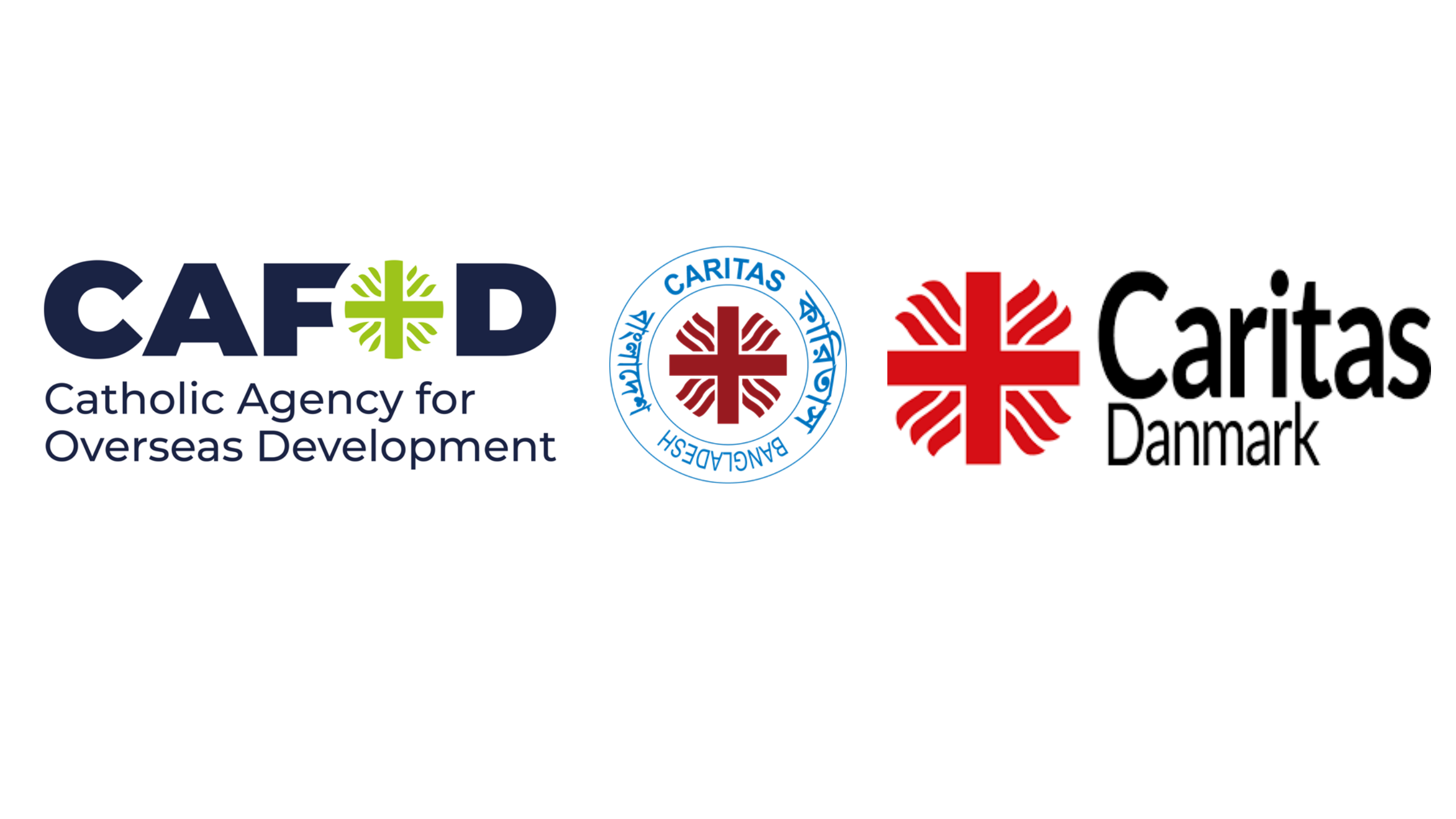

DORCAS Aid International
Through extensive research, DORCAS Aid International and the Maastricht University have produced a policy brief to further the climate resilience debate ahead of COP28. Principally, the brief examines how social protection helps to mitigate the negative impacts of climate change and increases the resilience of households and communities in low- and middle-income countries. The policy brief stipulates that organisations such as the World Bank, ILO and UNICEF (often supported by NGOs) are already committed to promoting preventive social protection and advocates that the UN can strengthen the role of local governments in this process, to further amplify the sustainability of the efforts.
The recommendations set out in the brief are:
1. Make social protection one of the key pillars in our battle against climate change and to reserve a reasonable percentage of the available climate resources for linking climate adaptation to social protection.
2. Complement the focus on anticipatory action and disaster preparedness with an additional focus on preventive social protection in low-income countries.
Mercy Corps
Mercy Corps have undertaken a range of research in relation to the climate crises ranging from examining climate finance, the loss and damage debate, questions of transparency and accountability in the climate space and the importance of planning recovery for resilience.
Key resources:
- Breaking the Cycle: Practical Solutions to Unlock Climate Finance for Fragile States. This report explores solutions and case studies demonstrating how climate finance can be increased in fragile and conflict affected situations.
- Falling through the gaps: how global failures to address the climate crisis are leading to increased losses and damages and Closing the gaps: A framework for understanding policies and actions to address losses and damage. This report and policy brief scope out the impacts of loss and damage in Nepal, Bangladesh and Indonesia, and consider implications for national and international policy processes.
- At COP 27, Mercy Corps identified a gap around the lack of understanding between the loss and damage negotiators and the humanitarian sector. Their report Addressing loss and damage: Insights from the humanitarian sector seeks to speak across the divide and bring humanitarian insights into the climate space.
- 100 days to COP article focuses on the issue of transparency and accountability.
- Resilient Recovery policy brief. This report highlights how recovery is often not prioritised, but if recovery is resilient, it could be truly transformational. The report argues that this will only happen if there is pre-planning for a resilient recovery.


NEADS
In order to influence climate action, NEADS organised the joining of indigenous communities and local Civil Society Organisations in Assam, India to undertake community consultation ahead of COP28. Find out more at Indigenous Communities and Civil Society Unite for Climate Action at Assam Community Consultation | Assam Times
HelpAge International
HelpAge International also sheds light onto the challenges of drought and impacts on health and wellbeing of older persons.
Resources
Things have just gotten worse: the impact of the global food fuel and finance crisis on older people (2023) The briefing highlights the stark challenges facing older people as a result of the global food fuel and financial crisis. It finds that a large number of older persons are in urgent need of interventions and humanitarian aid to address high levels of food poverty and insecurity.
Grey and Green road map for climate actions: Consultations report to help achieve the Grey and Green manifesto priorities. This publication sheds light on consultations with 50 experts on the challenges of climate change and the impact on older people and sets out a number of recommendations.
Further resources:
- HelpAge Climate Videos
- Impact of Climate Change on Older People in East Africa
- Climate change and clean cooking in East Africa
- Solutions for the impact of climate change in East Africa
- Climate change's impact on unplanned migration of older people in East Africa
- Mental health impact of climate crisis on older people in East Africa
- Impact of climate change in East Africa
- Impact of climate change on older people in East Africa
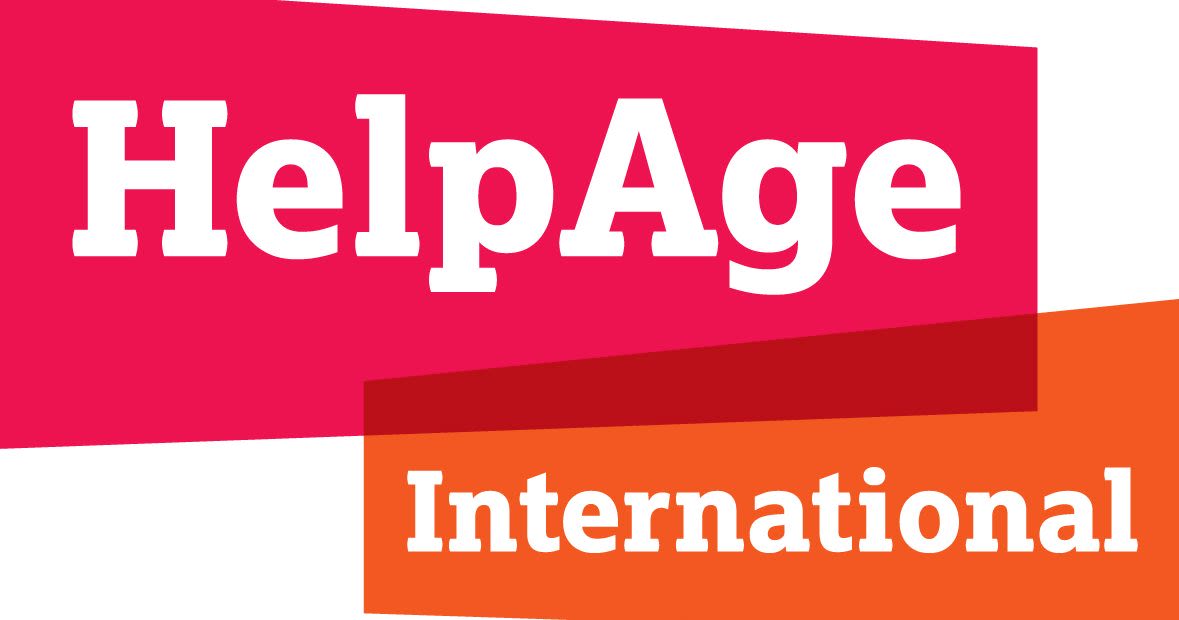

Plan International UK
Plan international provide critical insight into the devasting impacts of climate-change on women and girls. Notably, they identify that discriminatory social and gender norms mean that girls and women, as well as those marginalised by other forms of inequality, are disproportionately impacted by climate change and often have the fewest resources to cope.If current trends continue, by 2025, climate change will be a contributing factor in preventing at least 12.5 million girls from completing their education each year. Climate-related disasters strain the capacity of health systems, hinders access to SRHR services, and creates conditions that result in increases in gender-based violence.
Upholding women and girls’ rights and strengthening their meaningful participation in climate decisions and action is a therefore a priority. It involves increasing climate finance that is gender responsive, accessible to girls and young women, and supporting girls’ leadership in climate action, including through inclusive, gender-transformative education.
To learn more about the Plan International’s research and work on the intersection between climate change and women and girls please access the following resources:
- Adolescent girls in the climate crisis: voices from Zambia and Zimbabwe: This research demonstrates the wide-ranging effects climate change has on adolescent girls’ daily lives and futures.
- From the Frontlines: Youth Call for action to address loss and damage caused by climate change: This report examines the meaning and impact of loss and damage through an intersectional, youth-centred, gender lens.
- Young People and Green Skills: Preparing for a Sustainable Future: The global survey sought to better understand whether young people feel prepared for jobs in the green economy and their perspectives on the opportunities for and barriers to their participation
- Reimagining Climate Education and Youth Leadership: The global online survey captured the opinions and experiences of young people on climate change education and their participation in climate policy processes.
- Beyond Hunger: the gendered impact of the global hunger crisis | Plan International (plan-international.org) This report explores the gendered impacts of the hunger crisis in eight countries (Somalia, Ethiopia, Kenya, South Sudan, Mali, Niger, Burkina Faso and Haiti).
See further:
- Plan International Gender and Climate Change page
- Funds for the world’s climate hotspots woefully neglect the needs of children
- G7 must address hunger and gender equality | Plan International (plan-international.org)
- IPCC report lays bare catastrophic scale of climate crisis | Plan International (plan-international.org)
- Girls’ Rights in Climate Strategies
Promote our social media or contact us at Advocacy@startnetwork.org to engage in our advocacy efforts, working groups and to subscribe to our newsletter.
